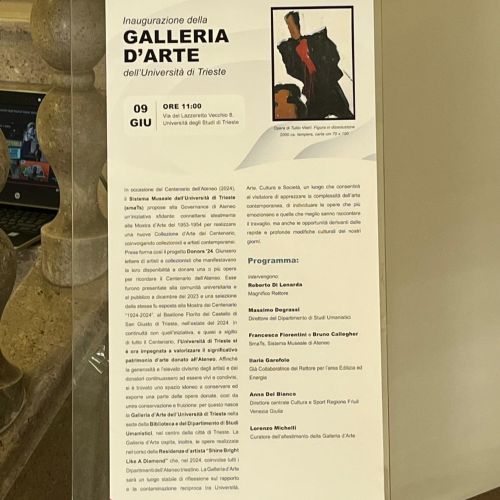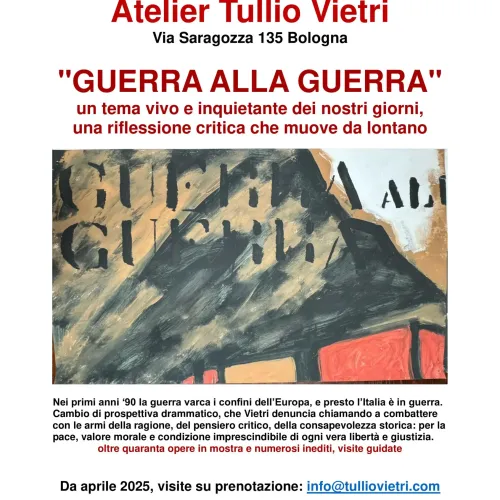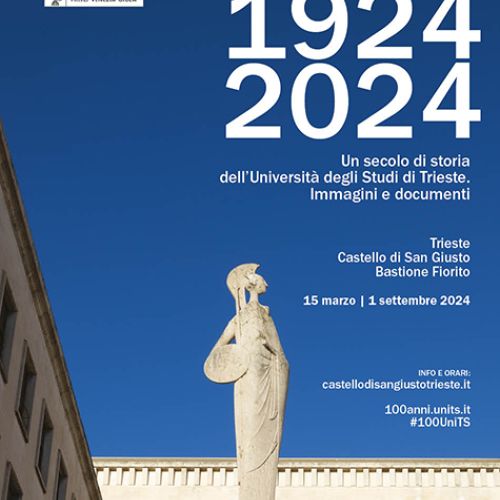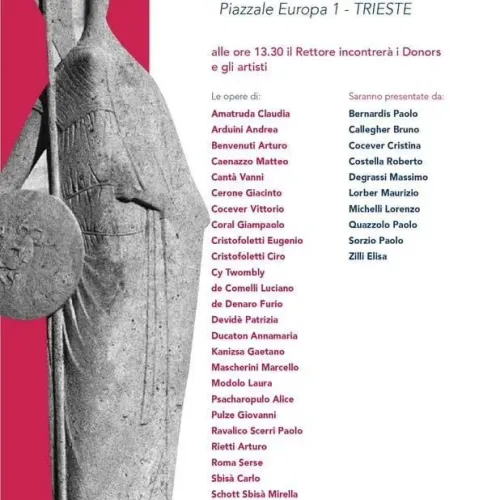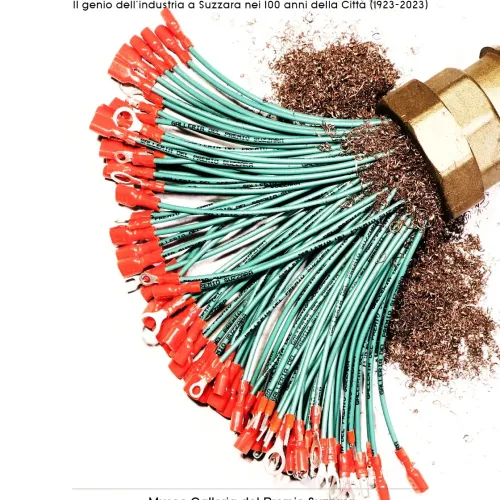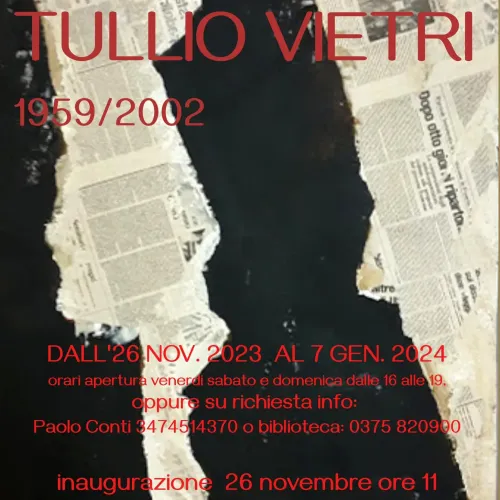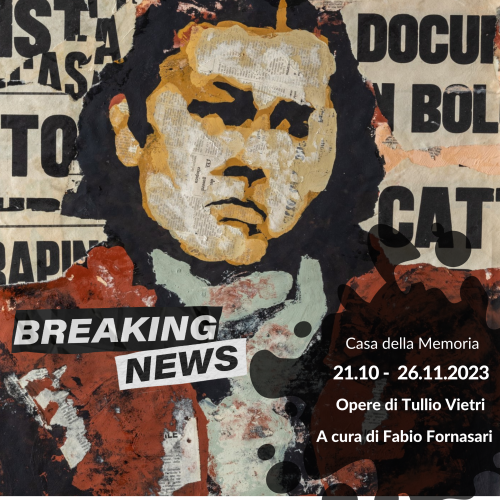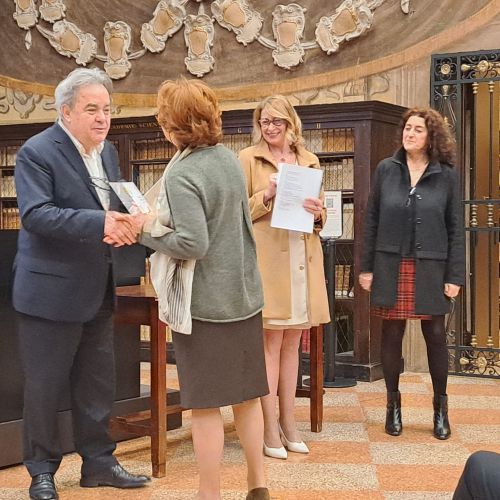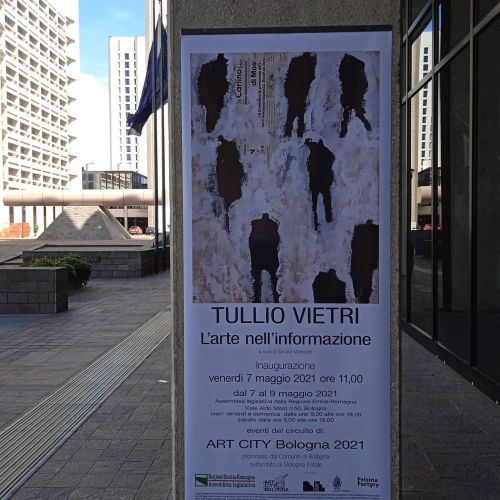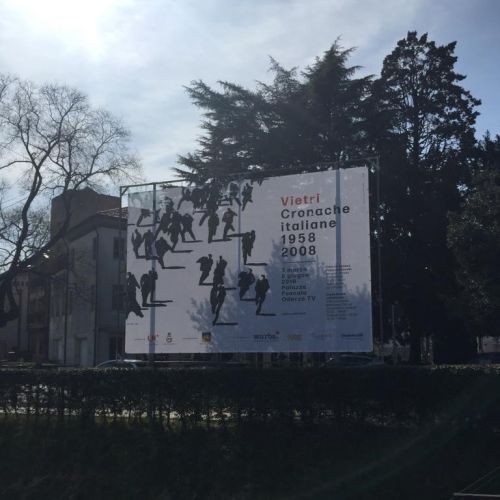Tullio
Vietri
The contemporary man can always be found at the center of his pieces, between conquests and defeats, illusions and disappointments, hope and loss of hope. Tullio Vietri is a “civil painter” who blends artistic research and ethical commitment, who believes in mankind and its spiritual values, in the freedom of individuals and in social justice.
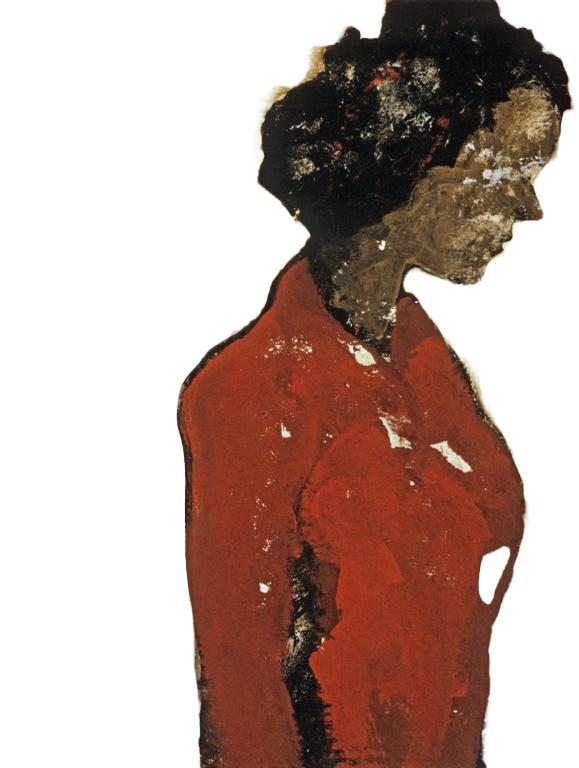
His realism is an ethical choice before being an aesthetic one, matured in the need for unequivocal communication, for a language capable of interpreting the historical present, the contemporaneity.
Consistently, his language changes over the decades, to represent the continuous mutation and progressive implosion of the witnessed reality, the tearing apart of the relationships between individual and collectivity, the deepening of the imbalance between society and environment, the spreading of an increasingly violent, pervasive and planetary conflictuality. Over time, his figuration becomes more dramatic, gradually acquiring more and more markedly expressionistic tones that, in his last period, almost decline towards an abstractionist tendency, to signify, through the regression of the form and a deliberate loss of organicity, the impending devastation on man and nature.
Vietri can be included in the “expressionist line” of 20th century art, although with its own intrinsic originality, that grows from his own conscious rejection of all the “isms” present in the aesthetic and ideological debate in the season of post-avant-garde revisionism and neo-figuration.
-
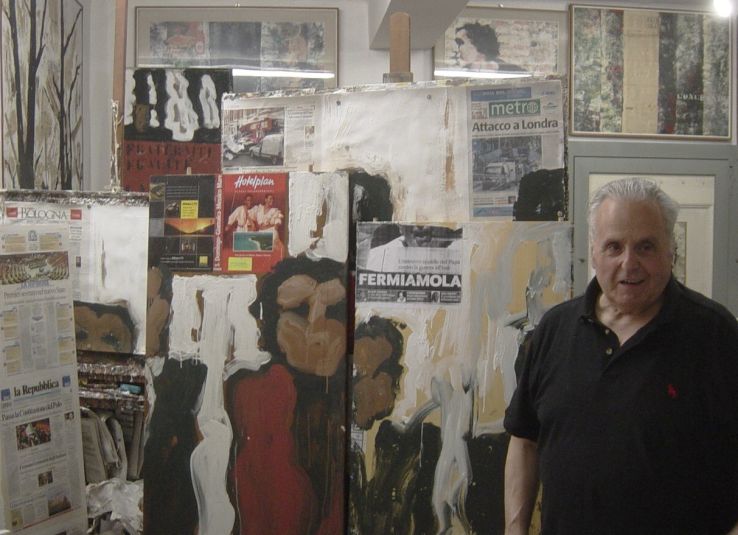
The Study
Bologna -
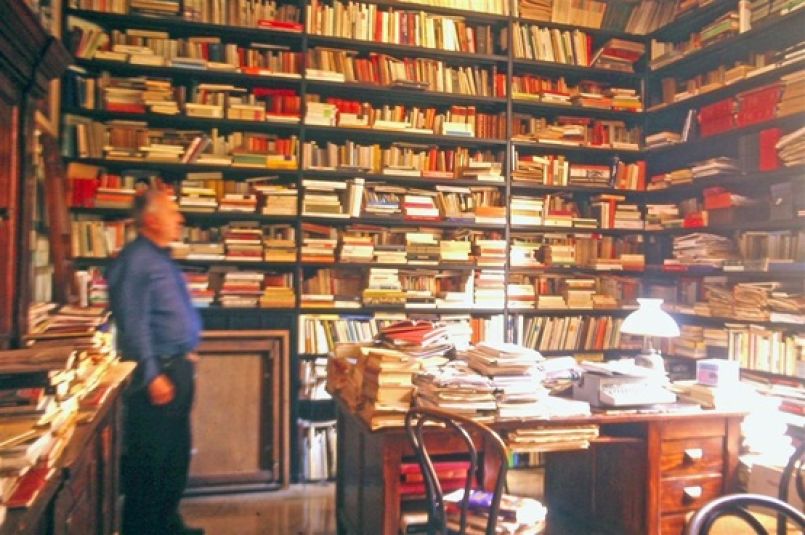
The Library
Bologna
-
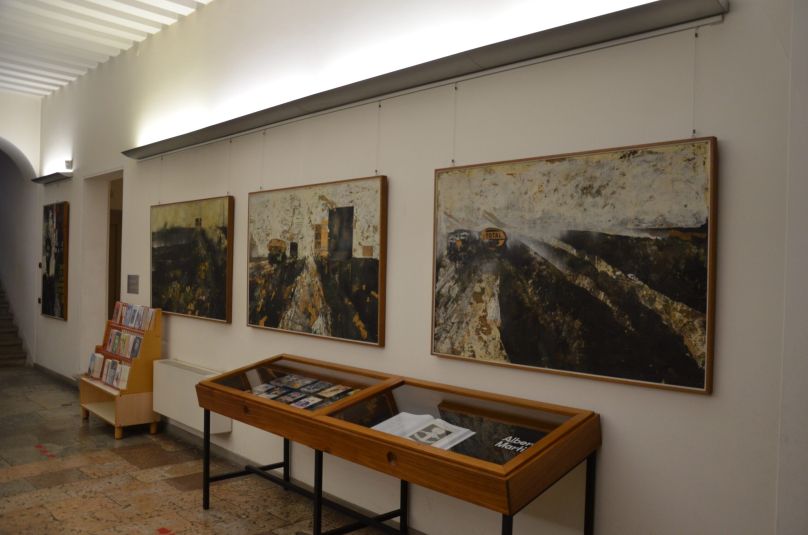
The Collection
Oderzo -
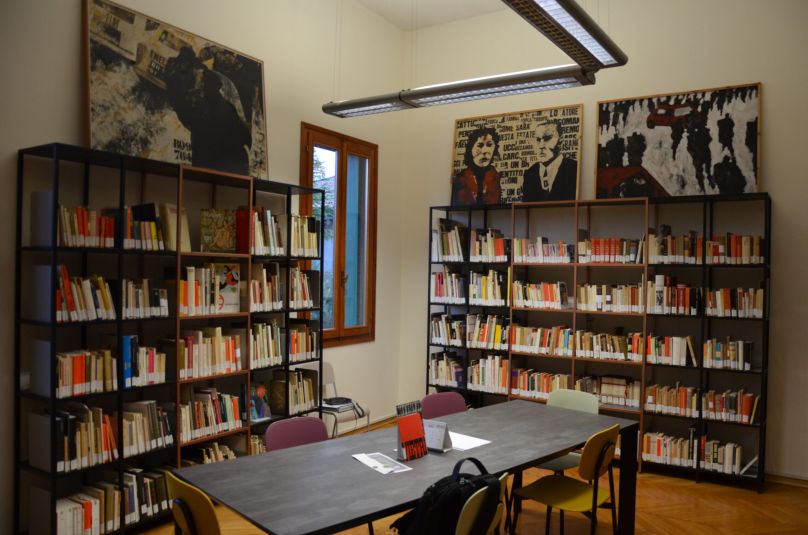
The Library Fund
Oderzo
Opitergino by birth and Bolognese by adoption, he made his debut as a painter in Bologna in the early 1940s, becoming a nationally and internationally renowned protagonist in the 1960s and 1970s. He took part in important exhibitions in Rome, Paris, Berlin, Los Angeles and Nottingham; he was himself a cultural operator and organizer, promoter and co-promoter in Bologna of a multiplicity of events that ended with the exhaustion of the protests in the early 1970s. From then on, he progressively and voluntarily excluded himself from an artistic world that he felt was increasingly conditioned by mercantile demands, lacking genuine cultural purposes. However, he continued his pictorial research that, although confined within the walls of his studio, never stopped and never failed in its ethical-aesthetic intentions. On the contrary, it takes on new vigor and since 1989 his research has been accompanied by activity for the magazine «Critica Radicale, per una nuova cultura per una nuova arte» («Radical Criticism, for a new culture for a new art»), a six-monthly review founded and directed by Vietri for eleven years. Then, in the 1990s, the return to Oderzo where, far from the official circuits of the market and criticism, he felt he could once again open up to dialogue without having to deny the reasons for his dissociation.
In every moment of his artistic and existential parabola, Vietri has denounced the dangers towards which contemporary society is running, he has called on men to reflect and react. Over the last few years he has screamed about the lack of future of a society with no more intellectual memory, cultural identity, spiritual values: thus his latest pictorial production becomes a civil lamentation, a moral invocation for the preservation of nature, for the very survival of humanity, for the protection of the fundamental rights of every man.
Retrospective Oderzo 2019
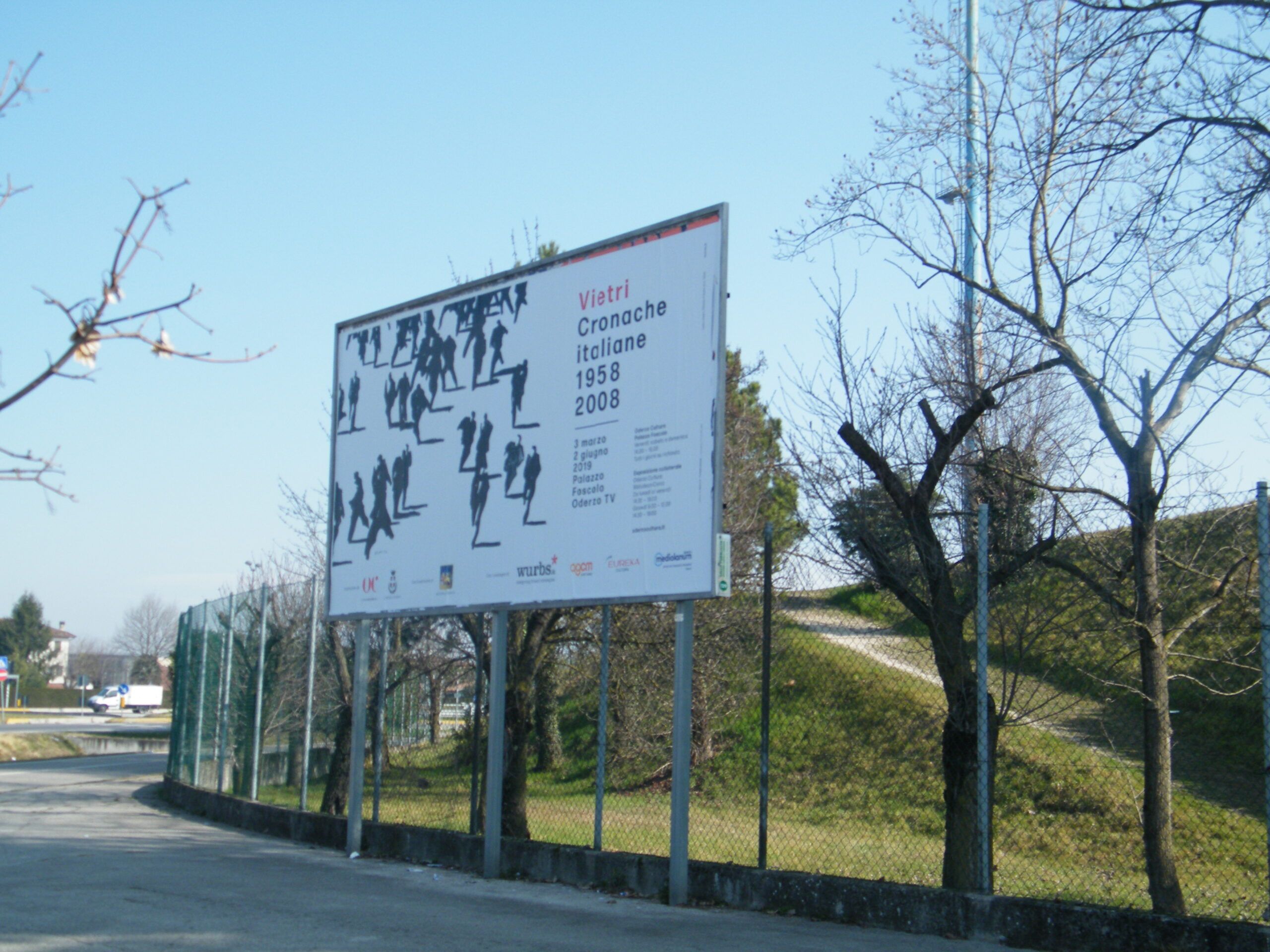
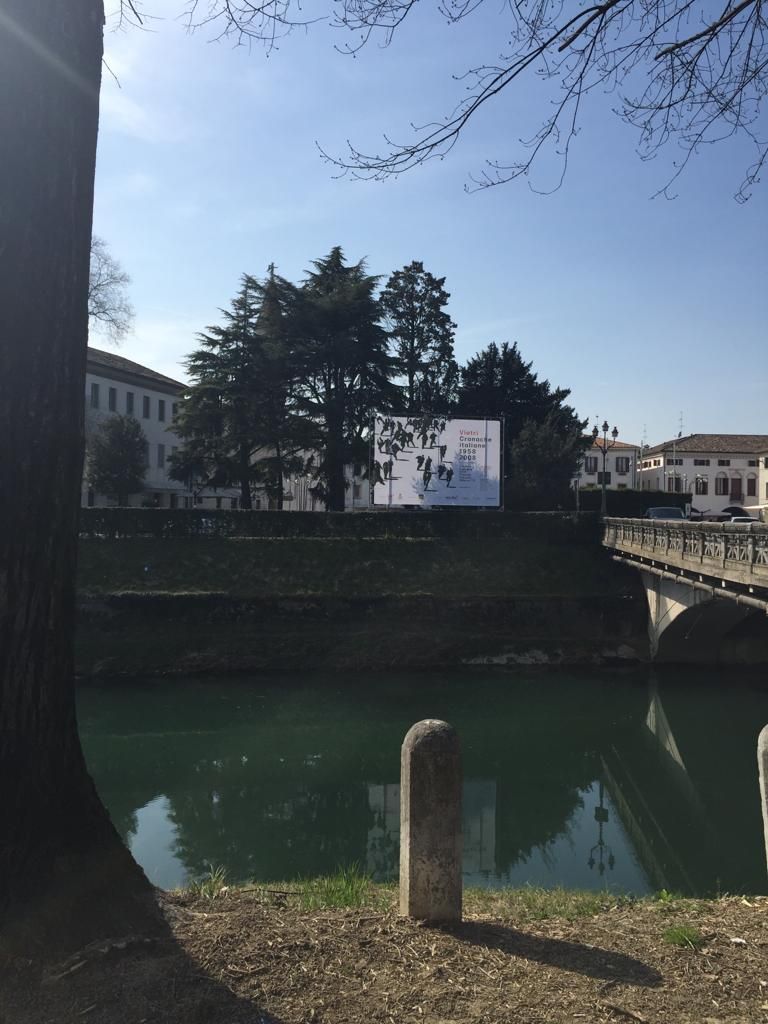
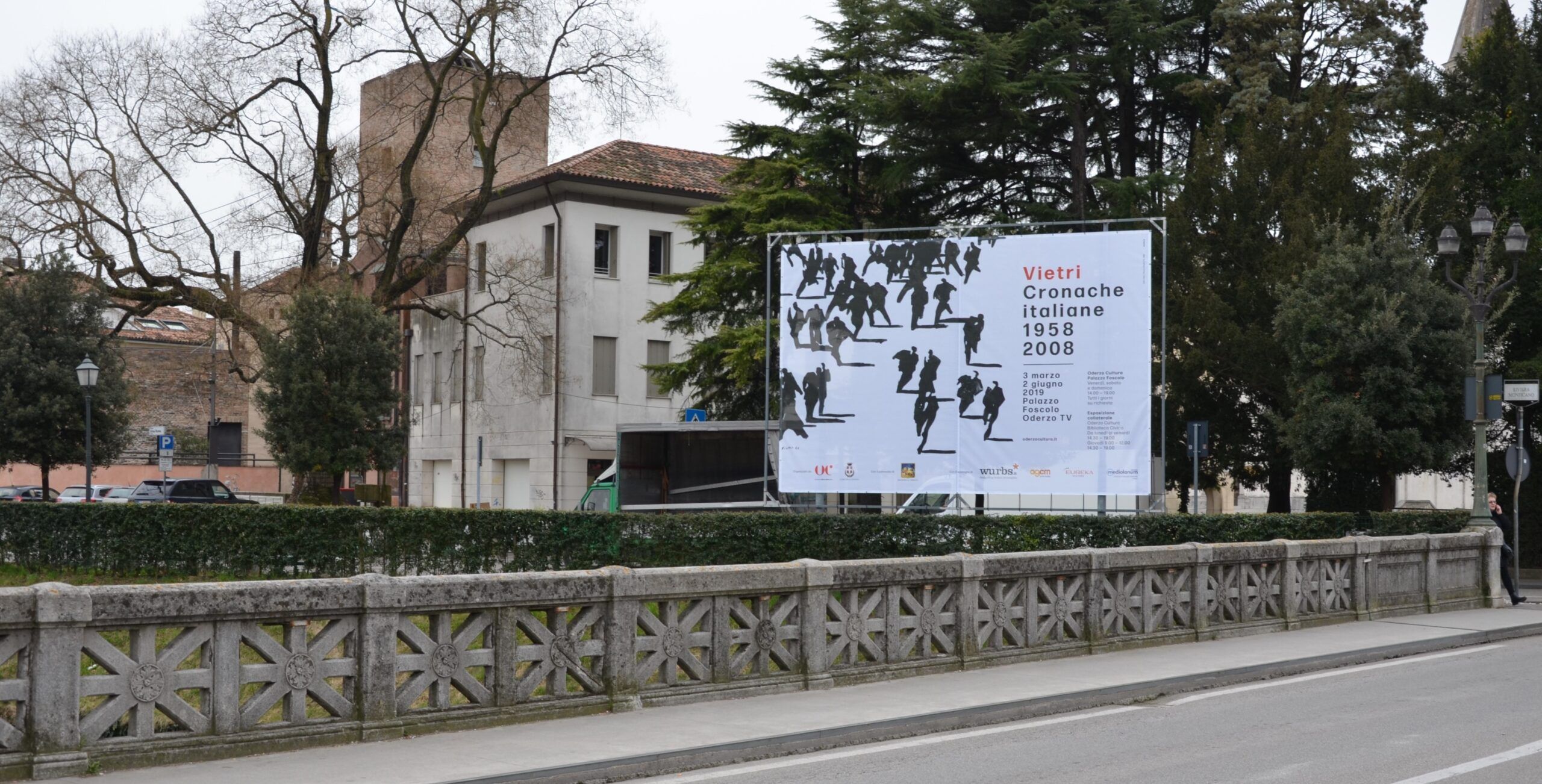
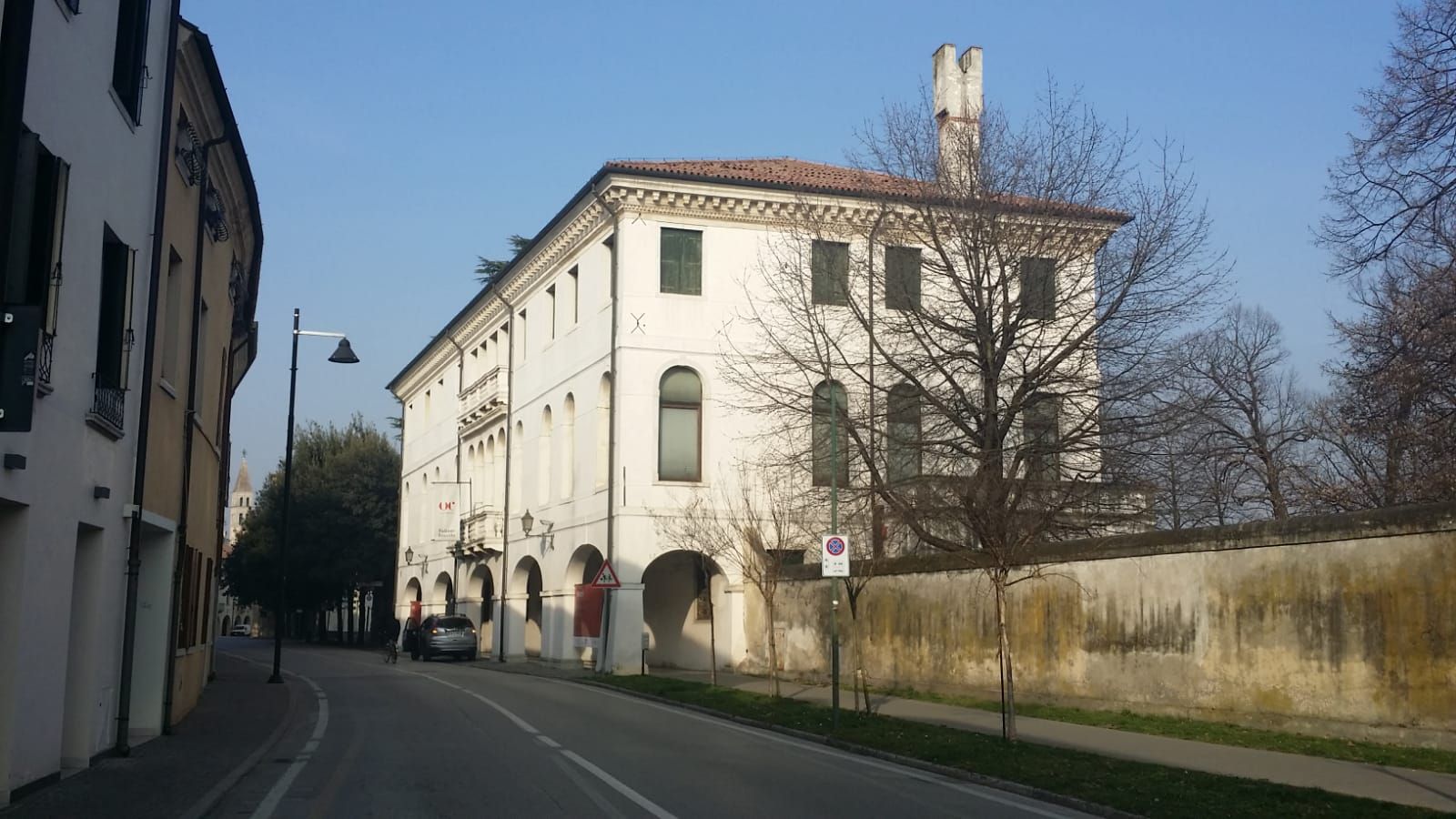
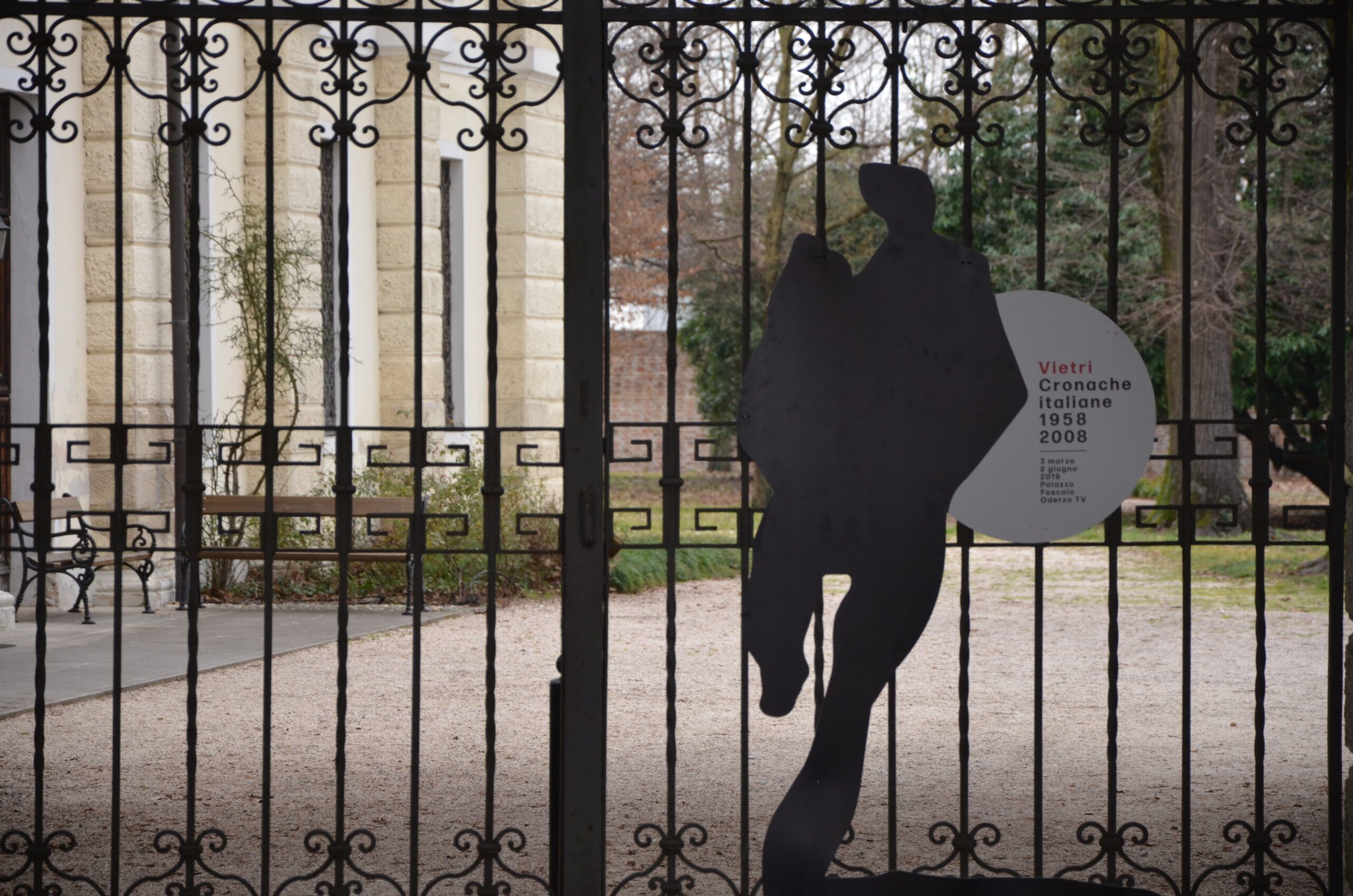
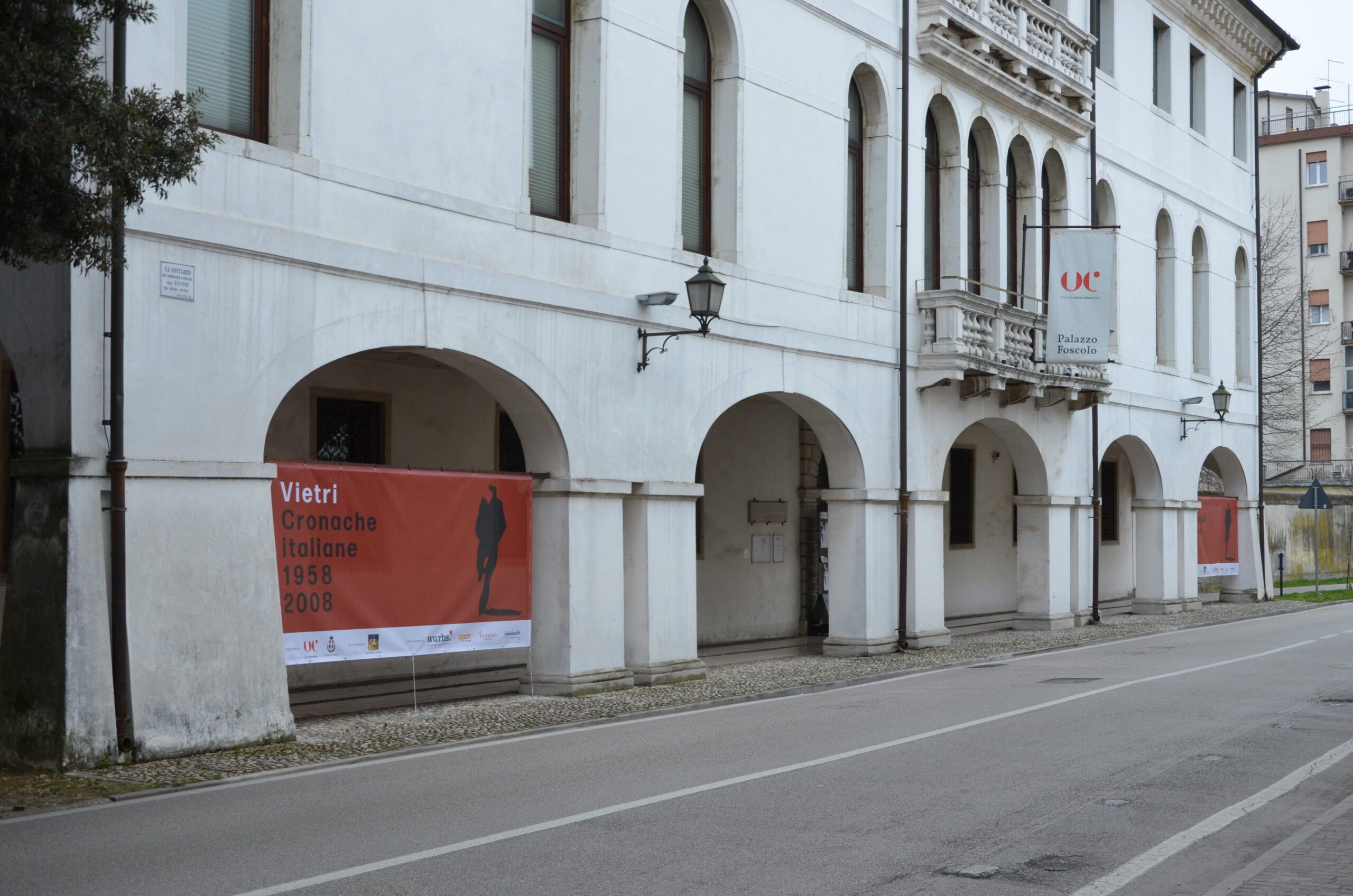
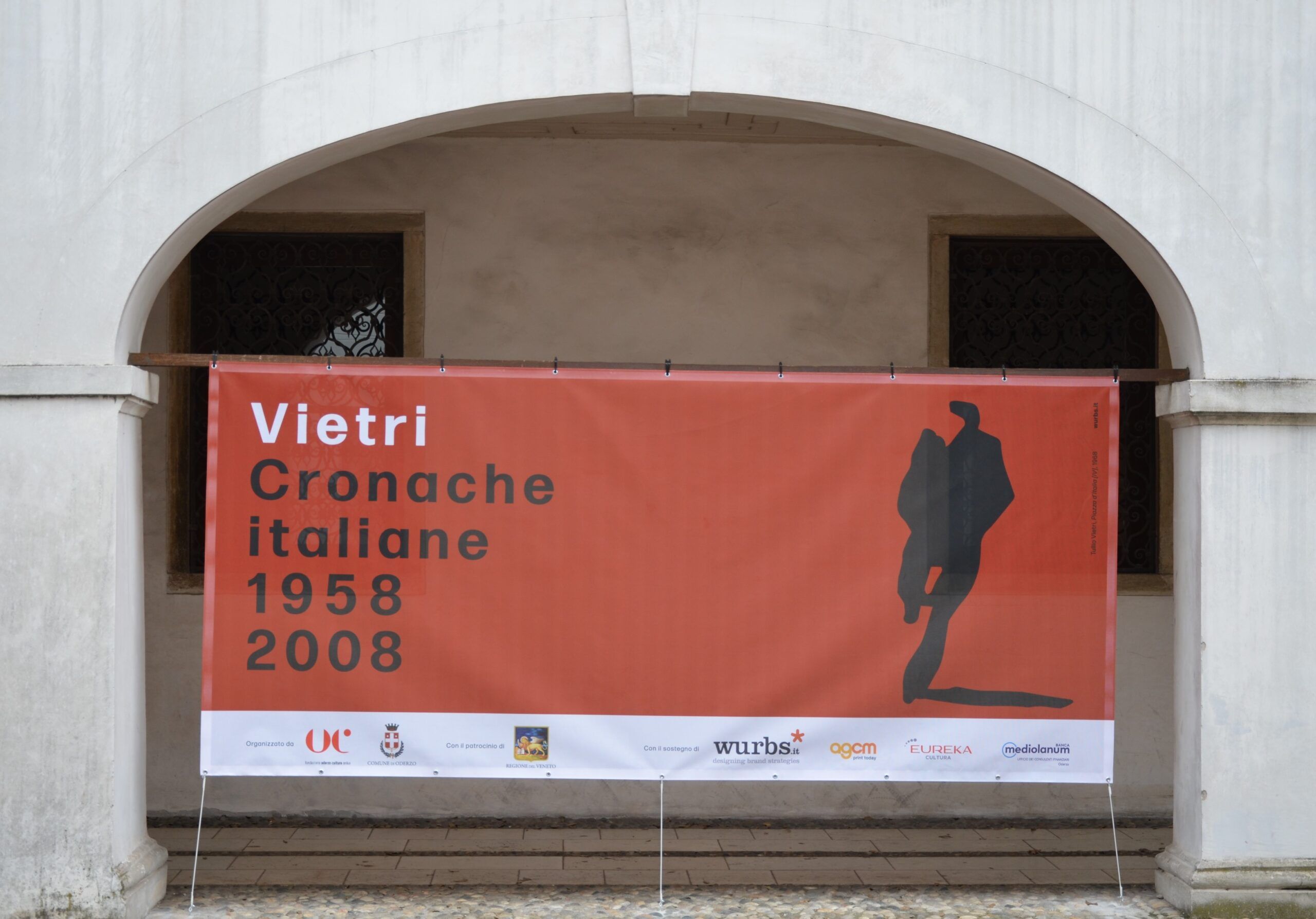
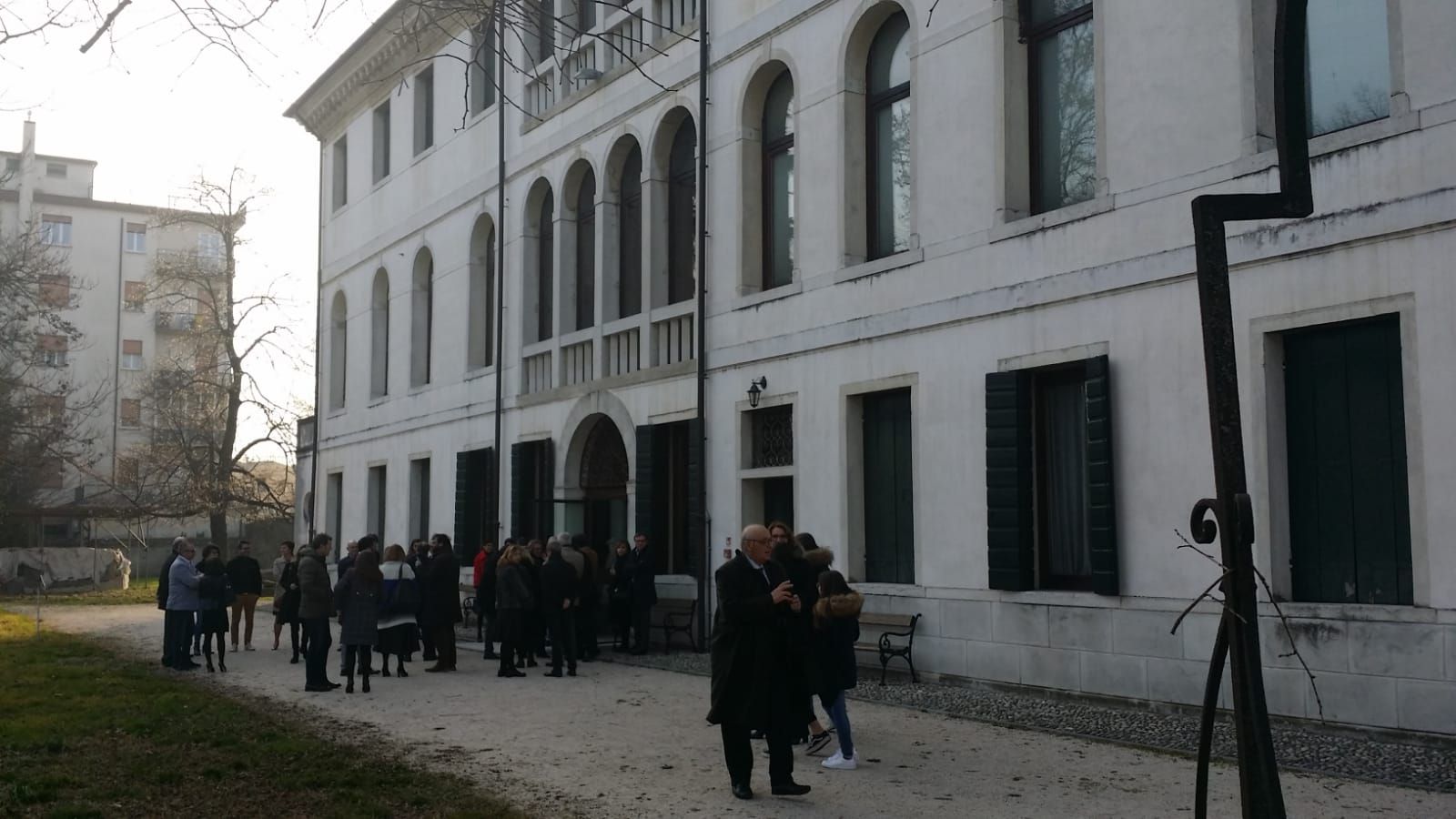
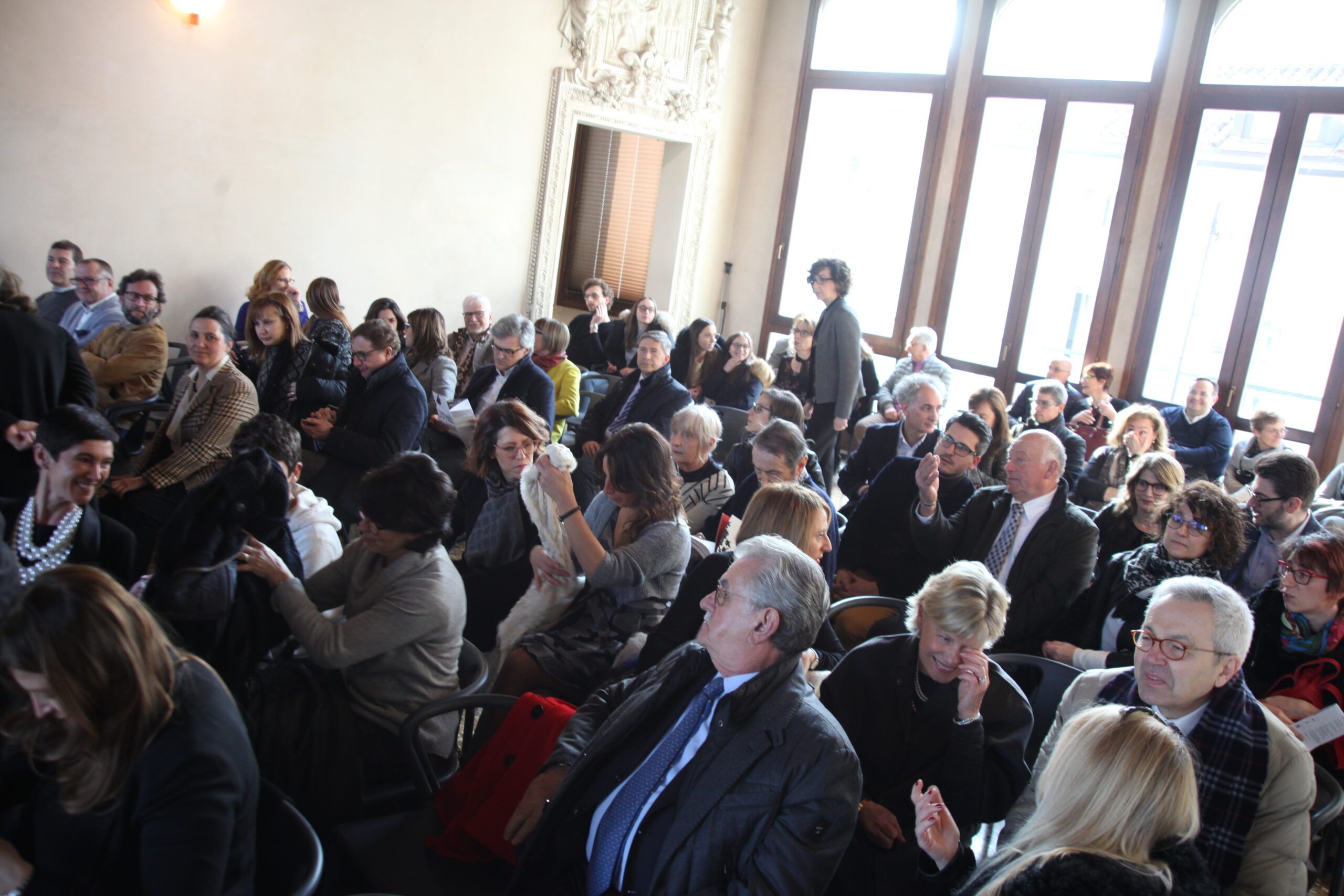
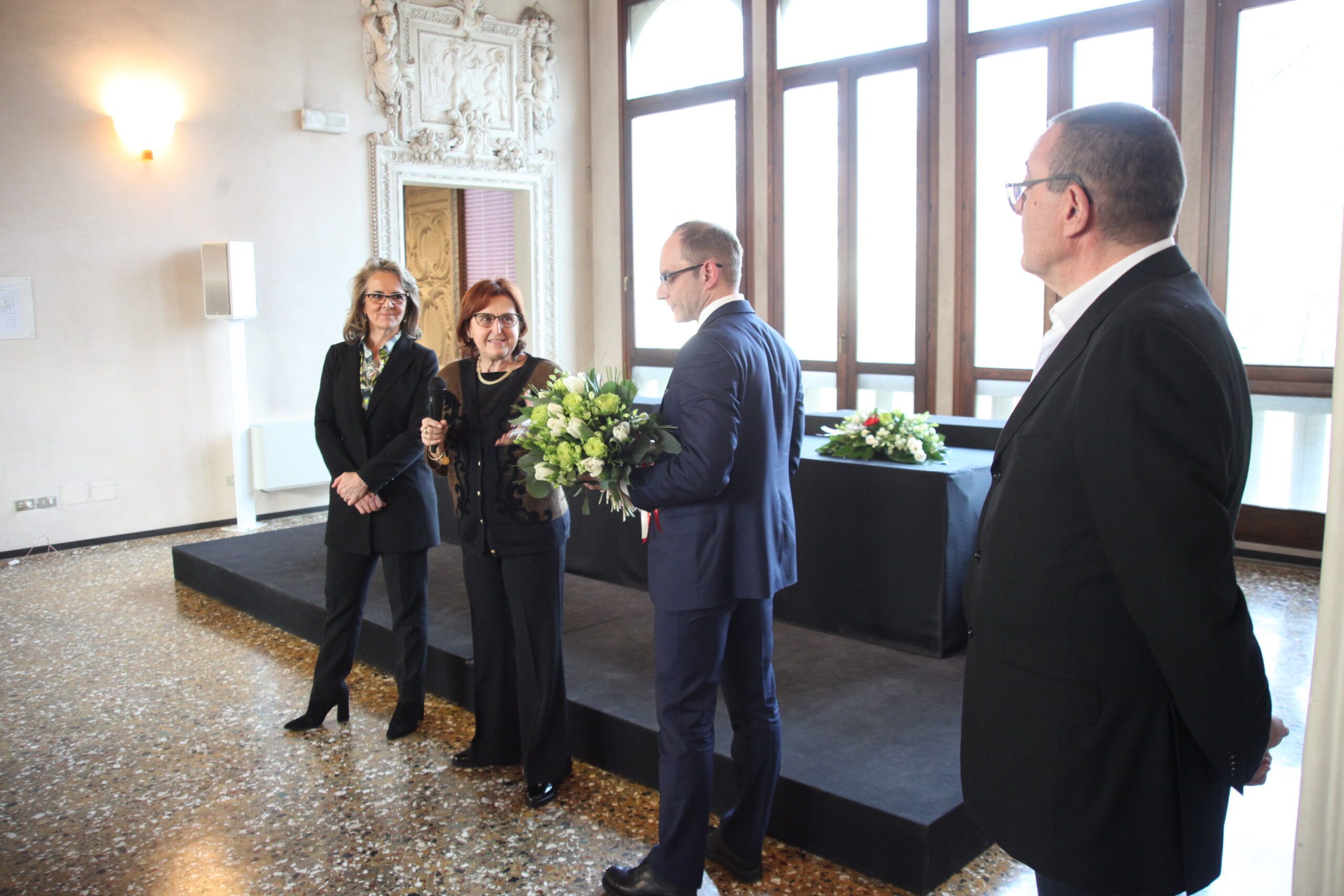
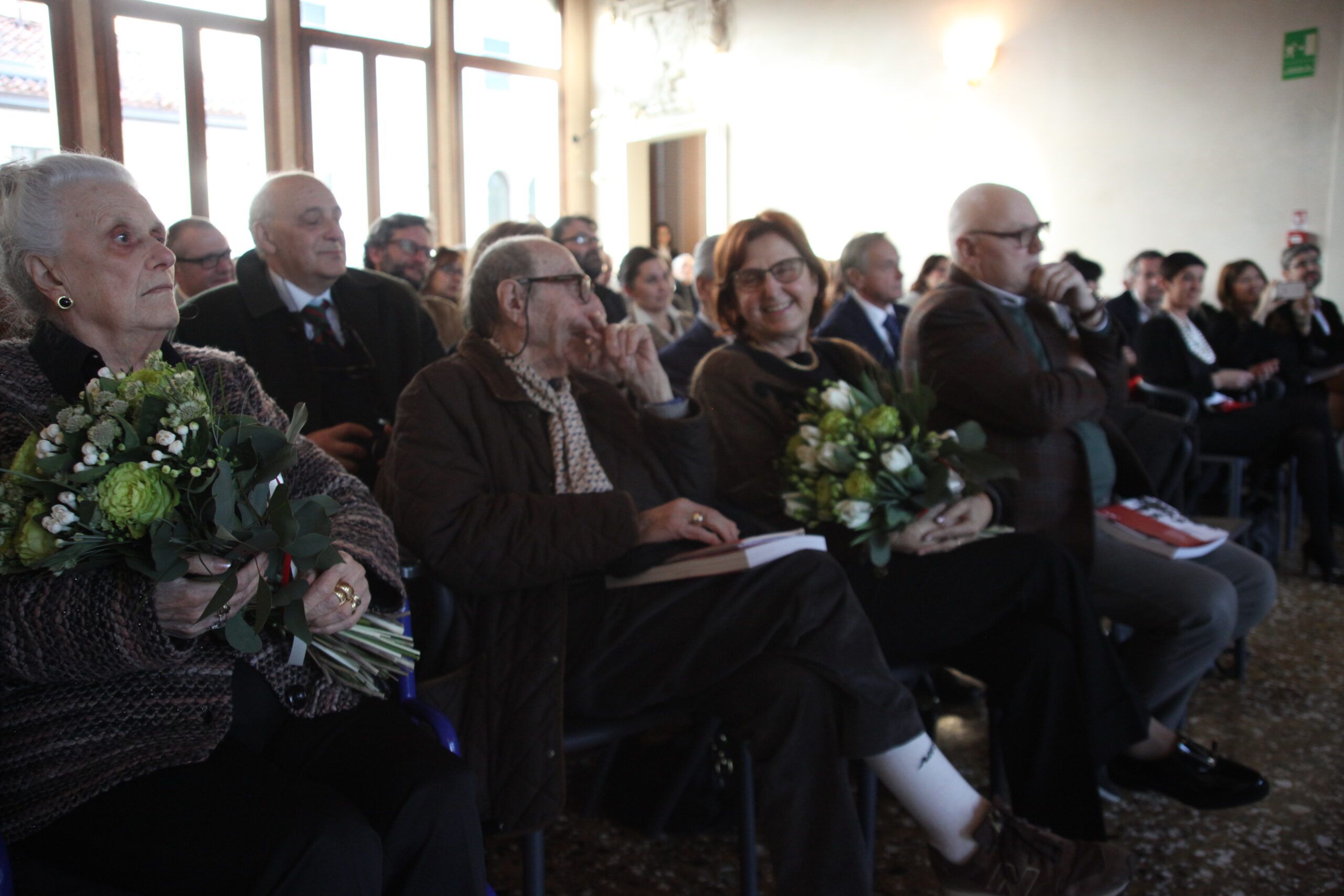
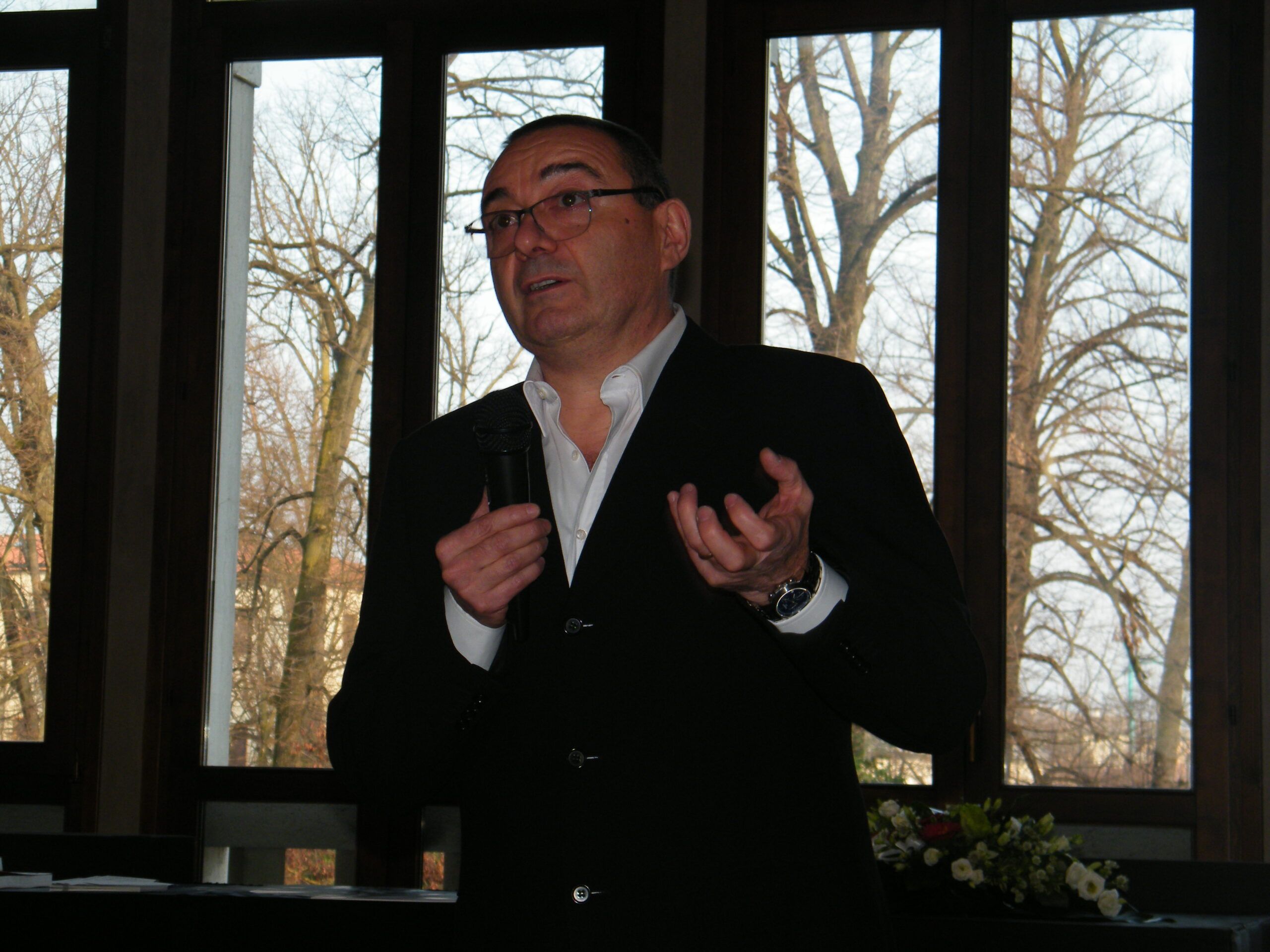
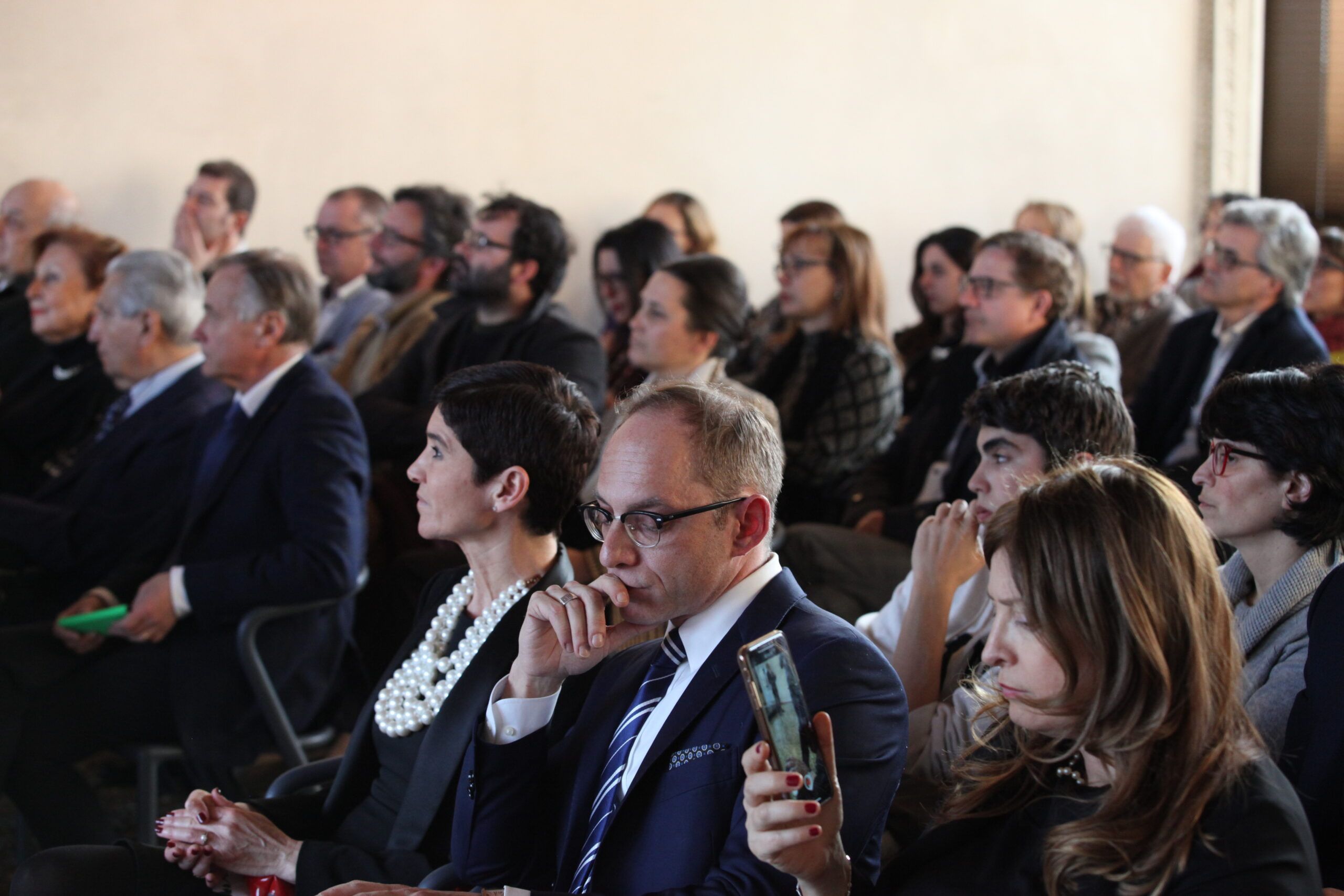
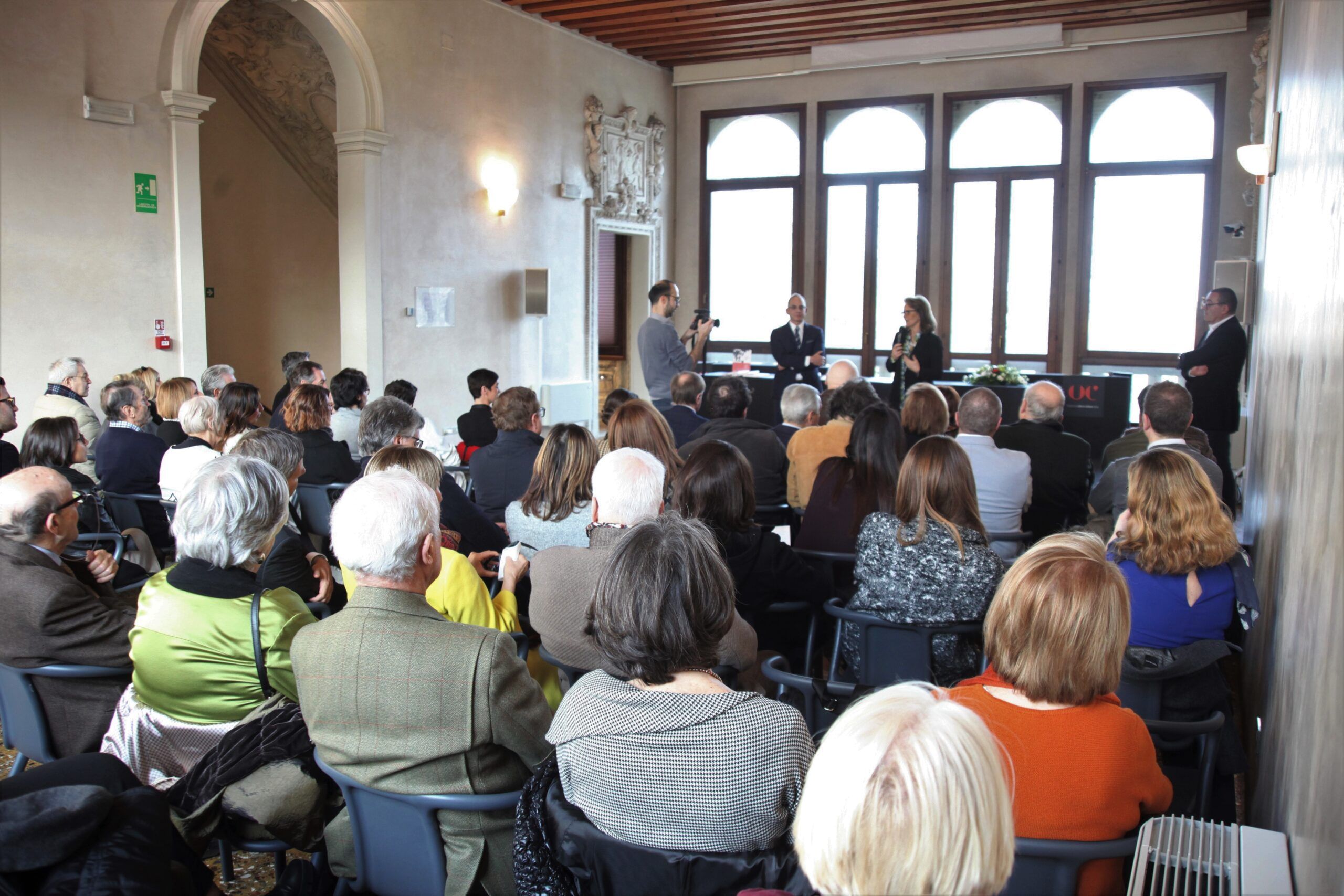
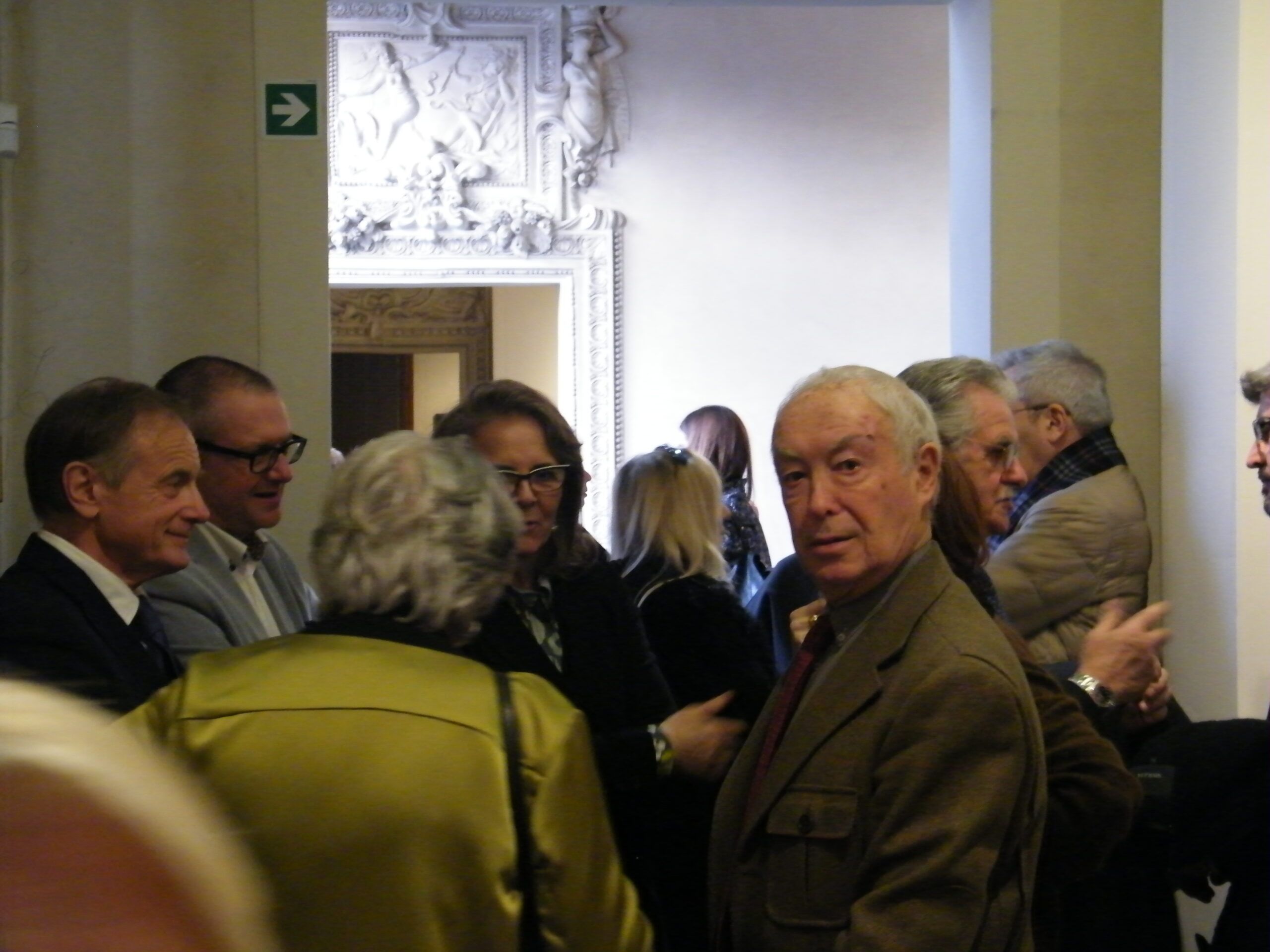
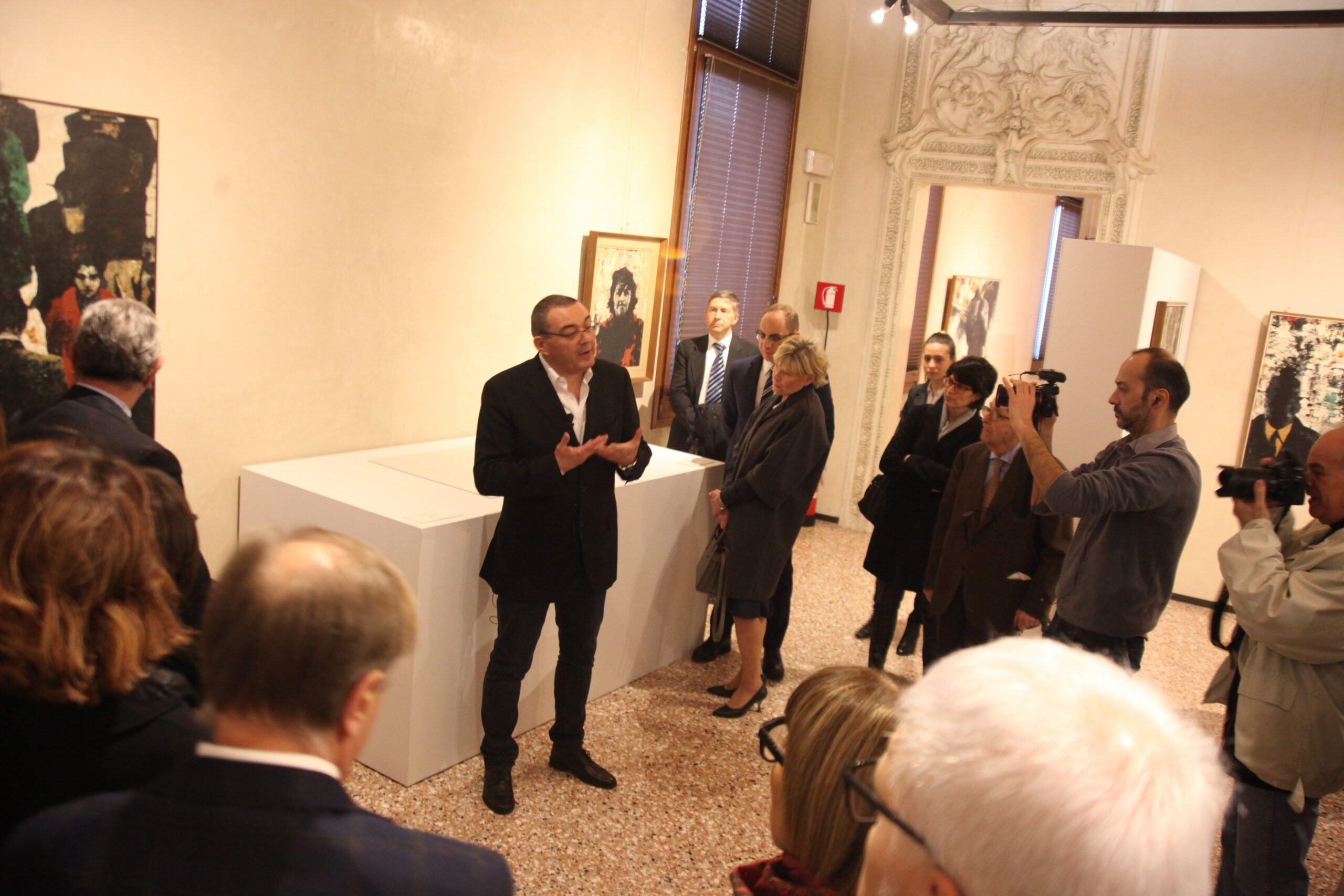
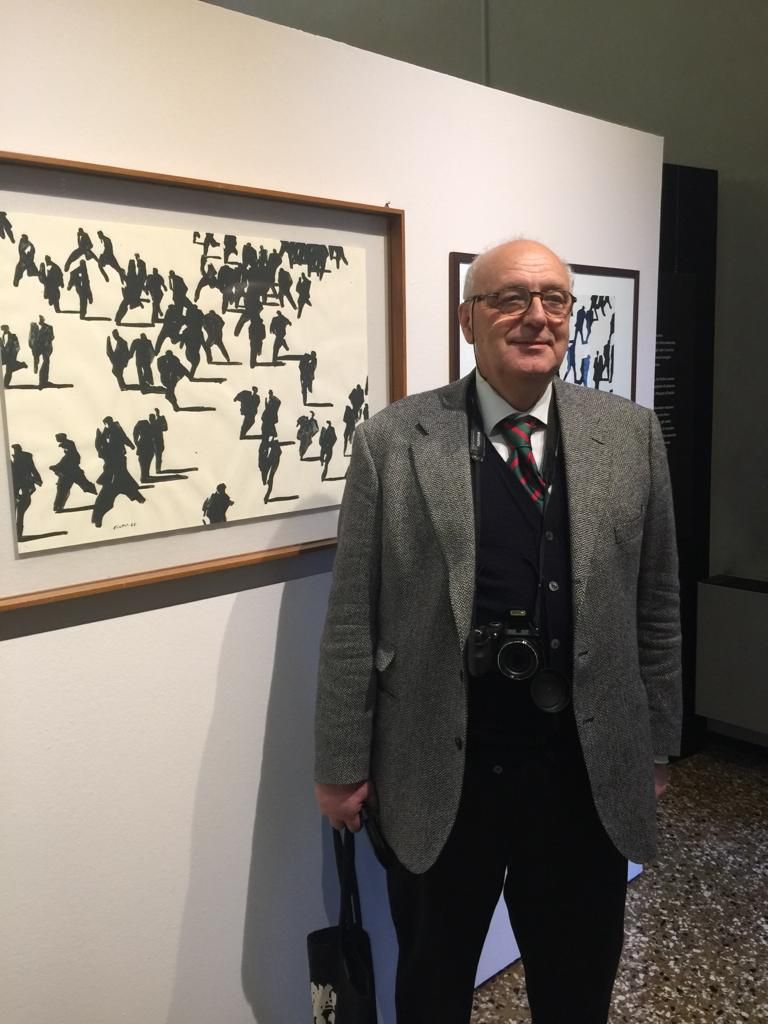
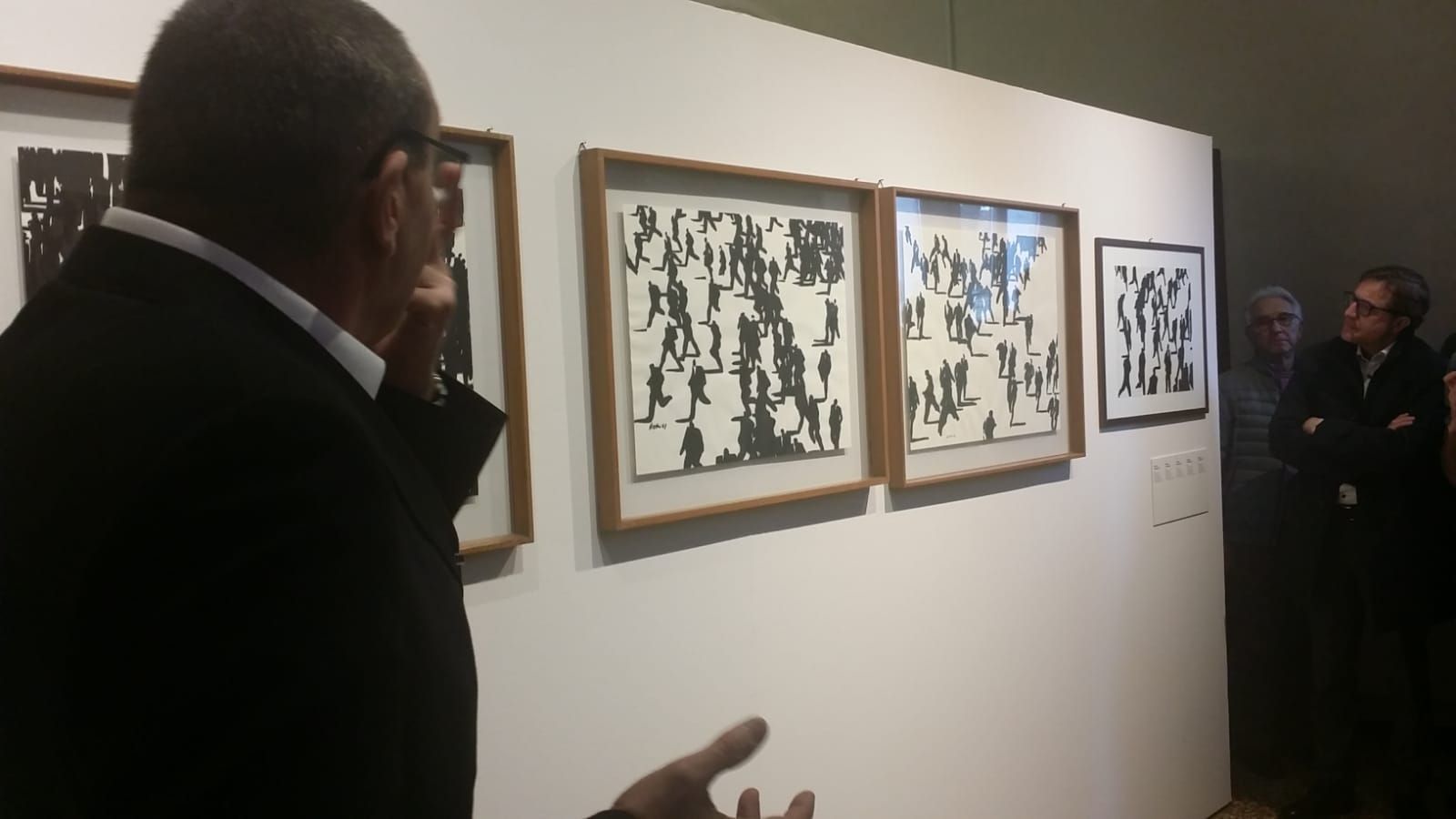
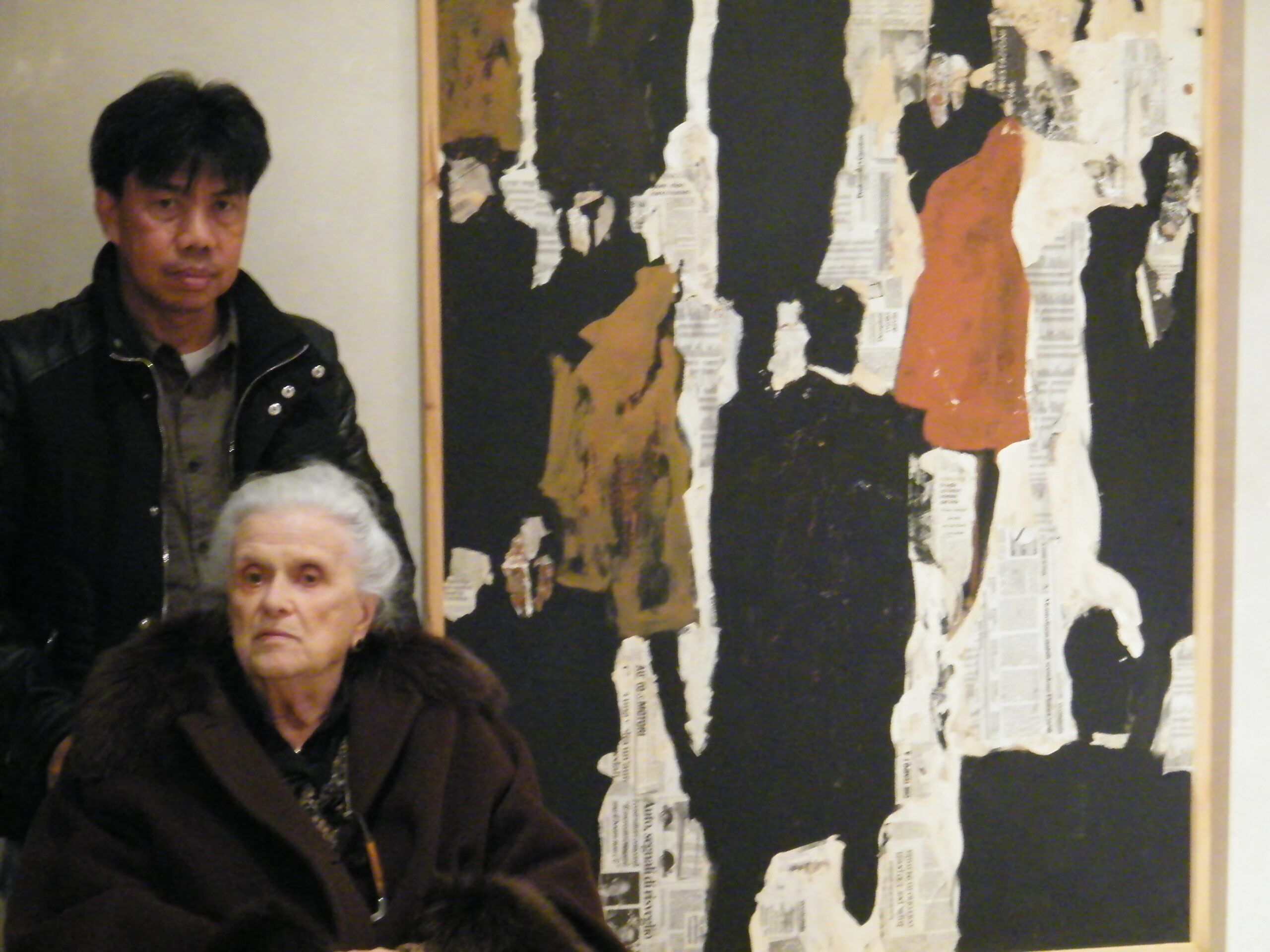
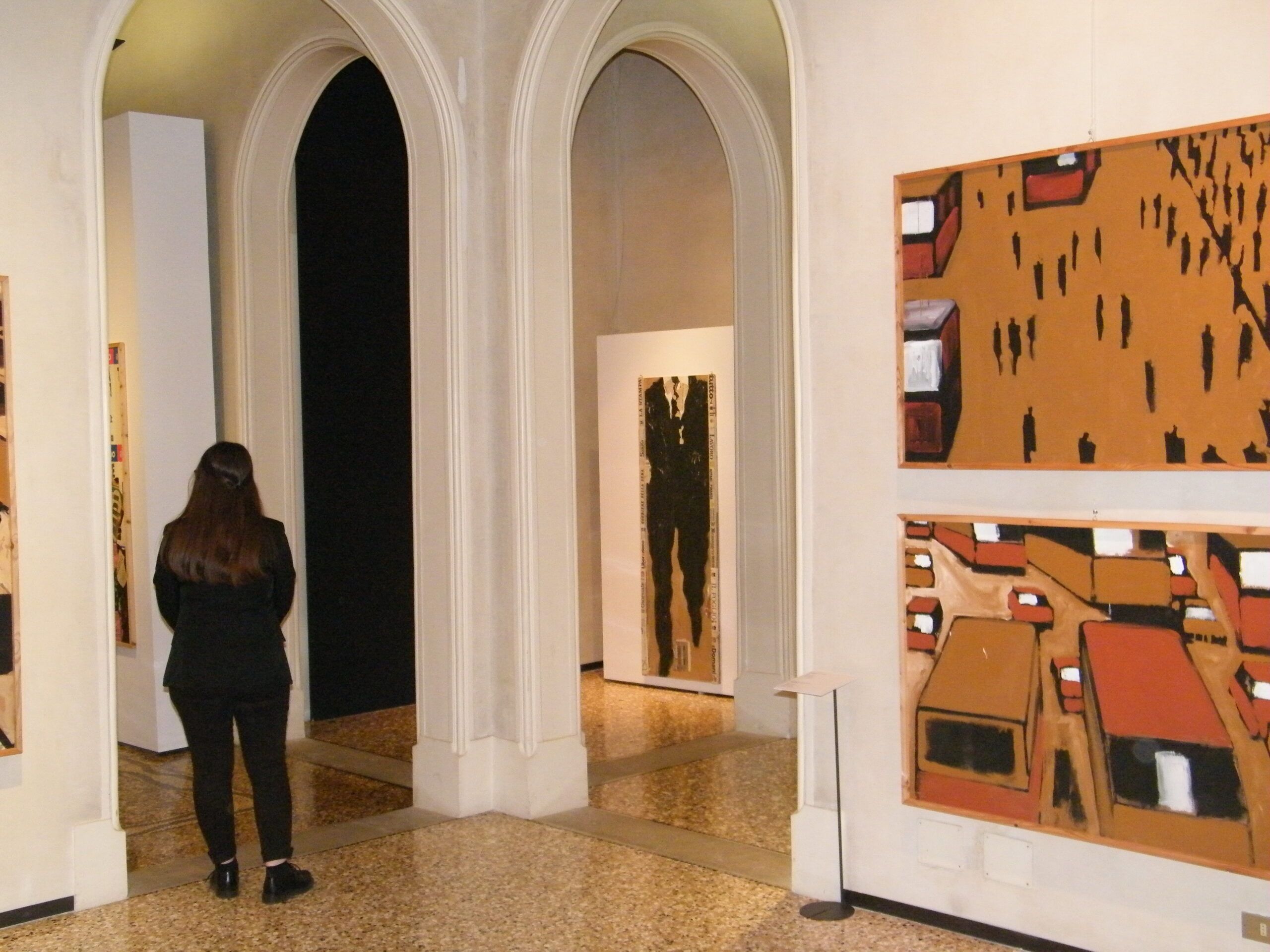
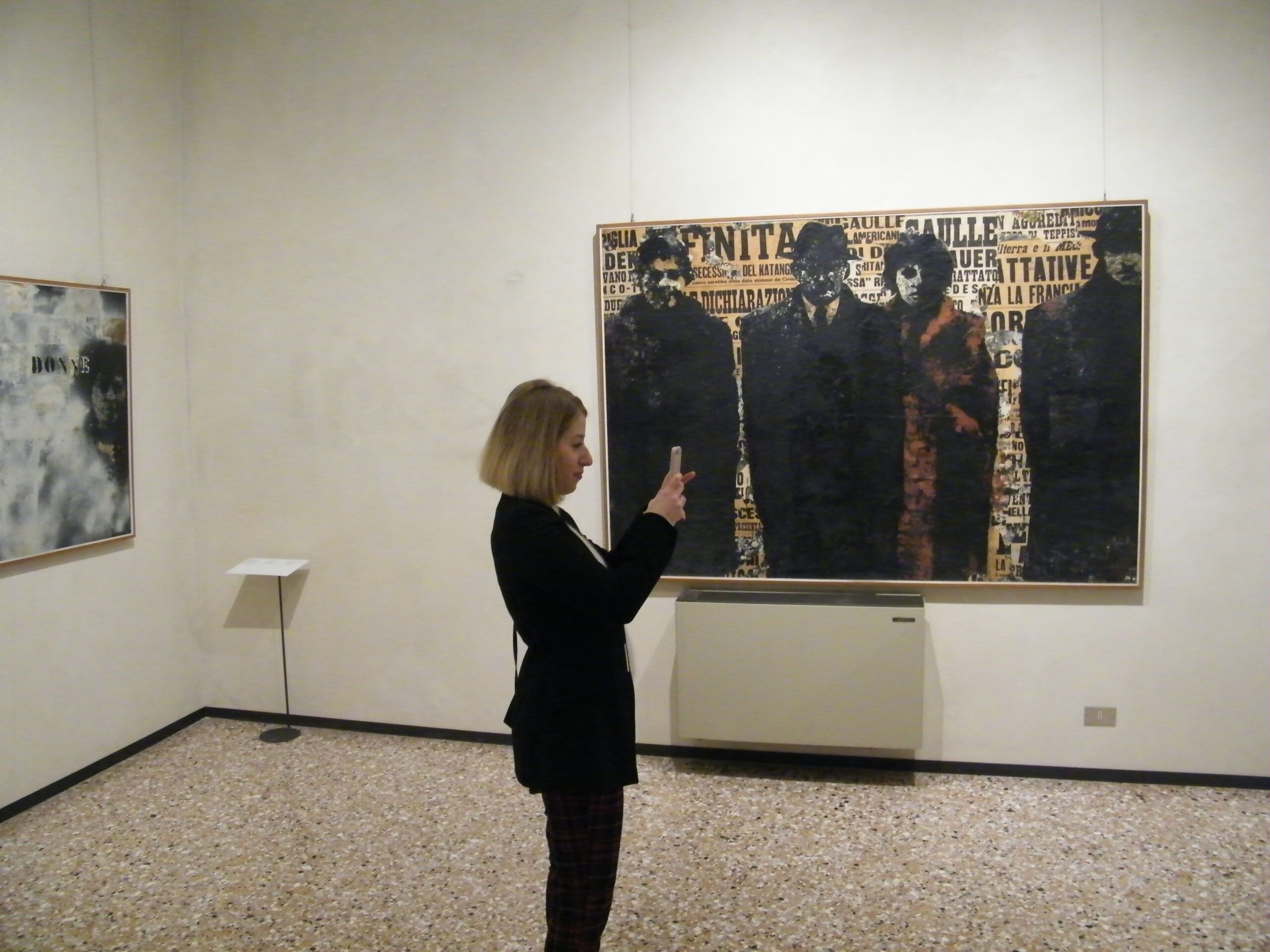
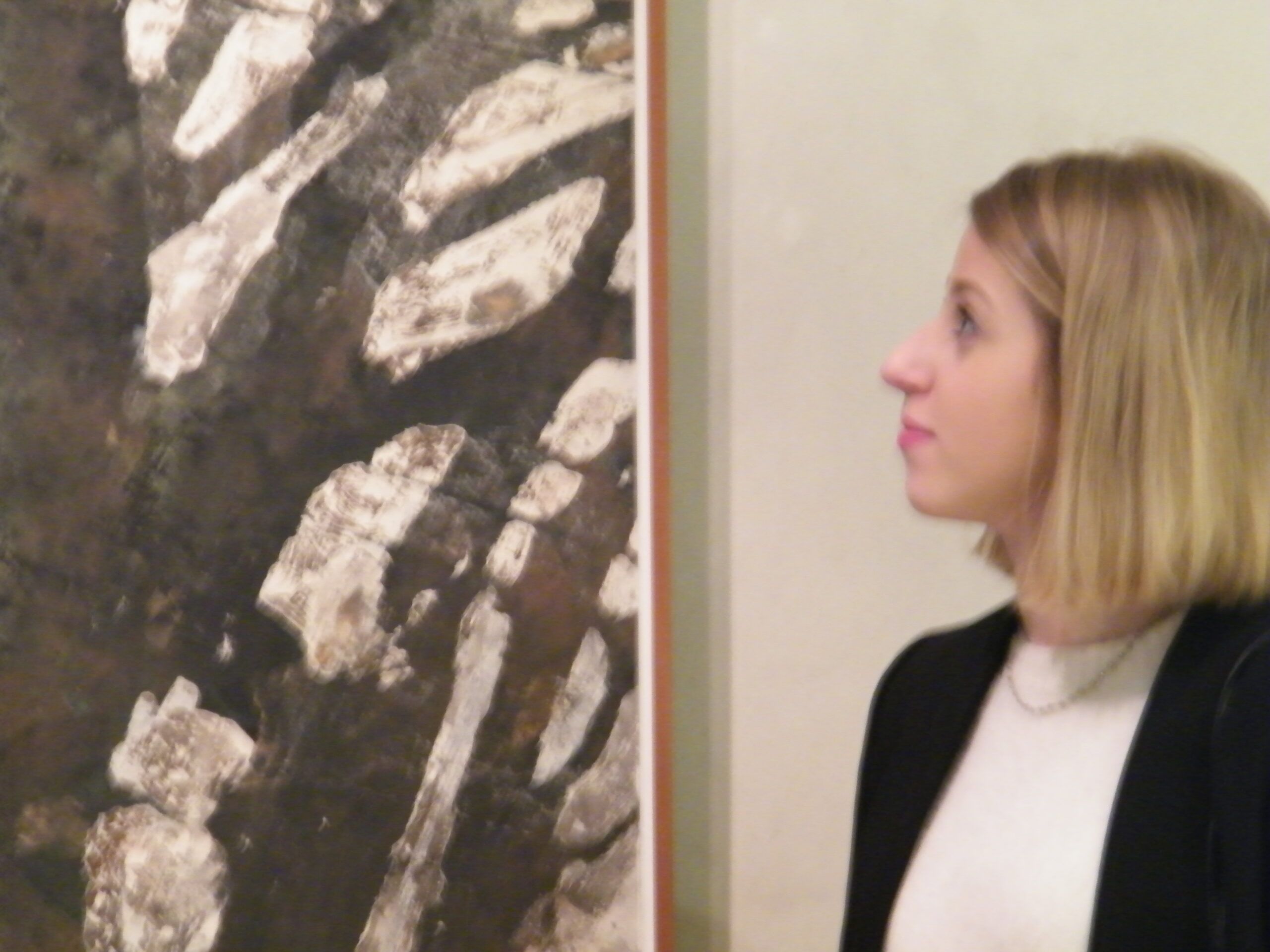
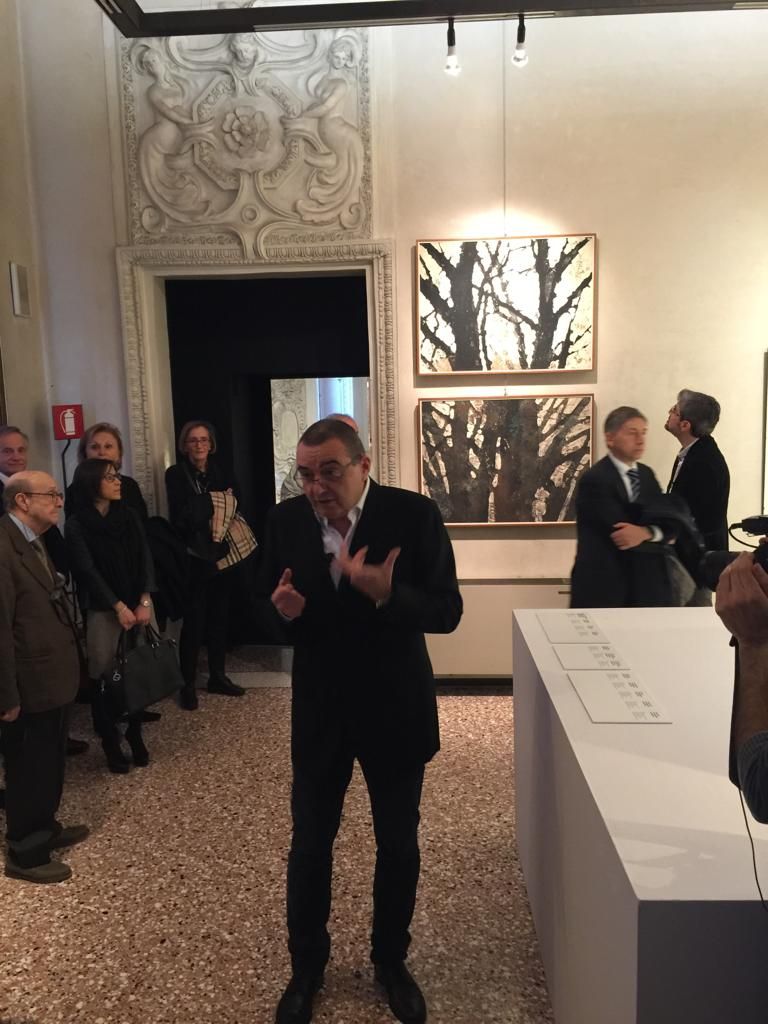
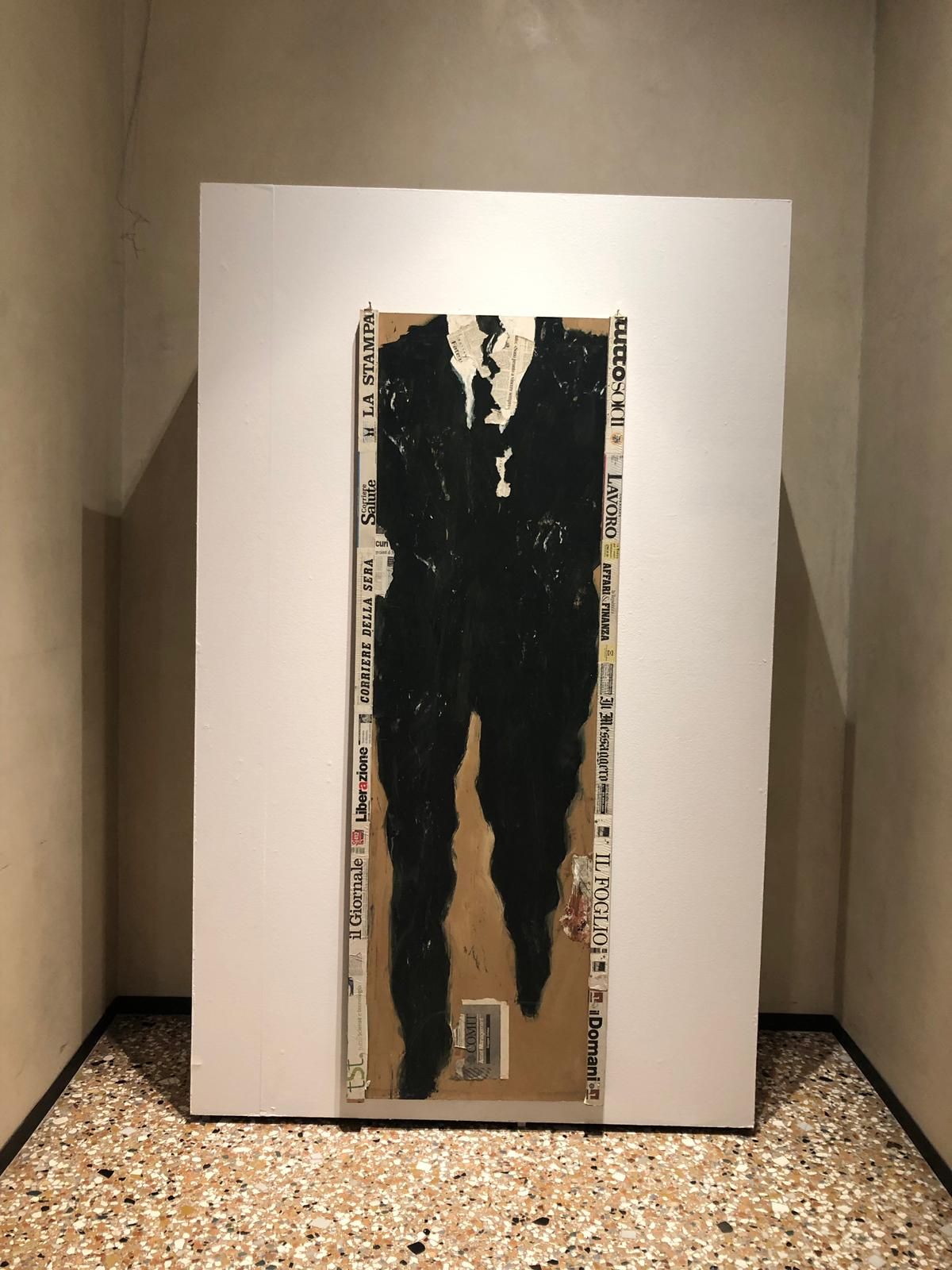
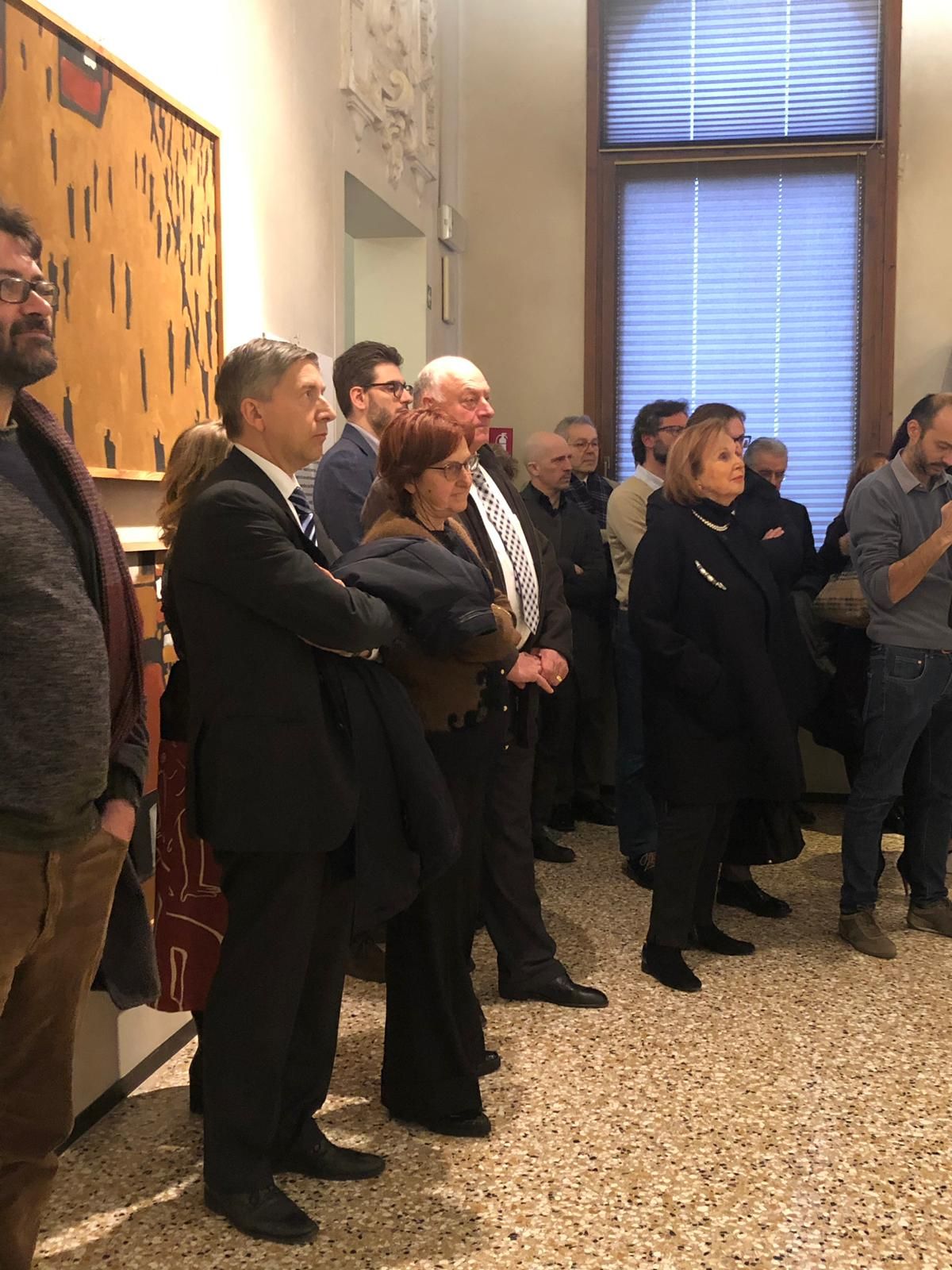
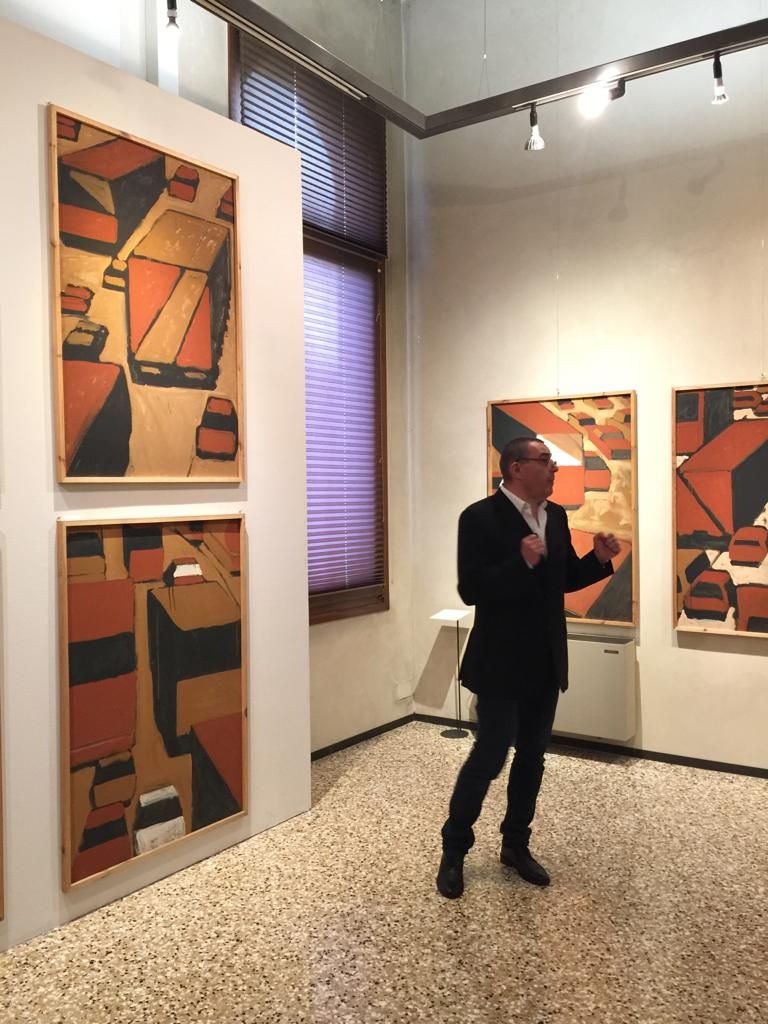
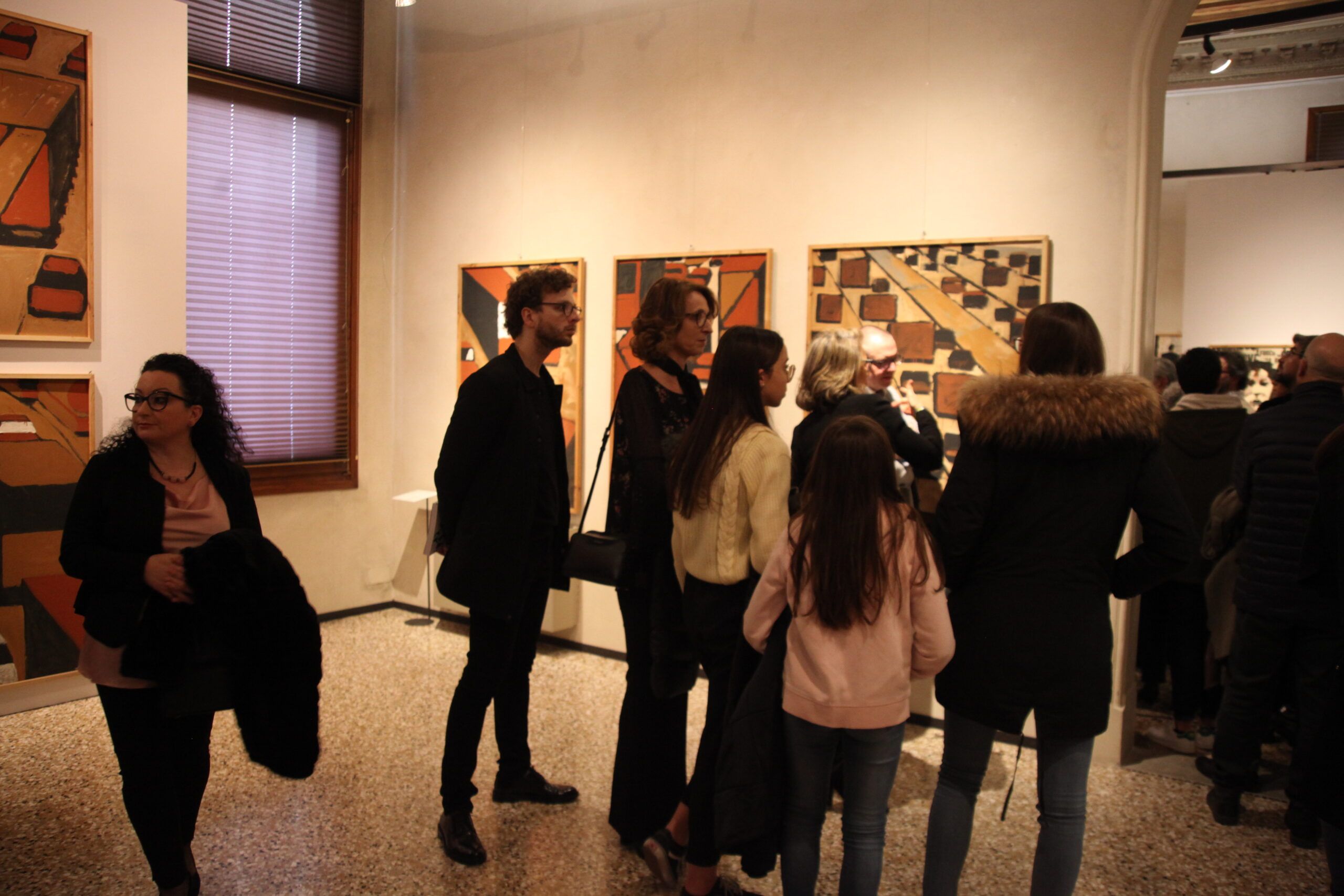
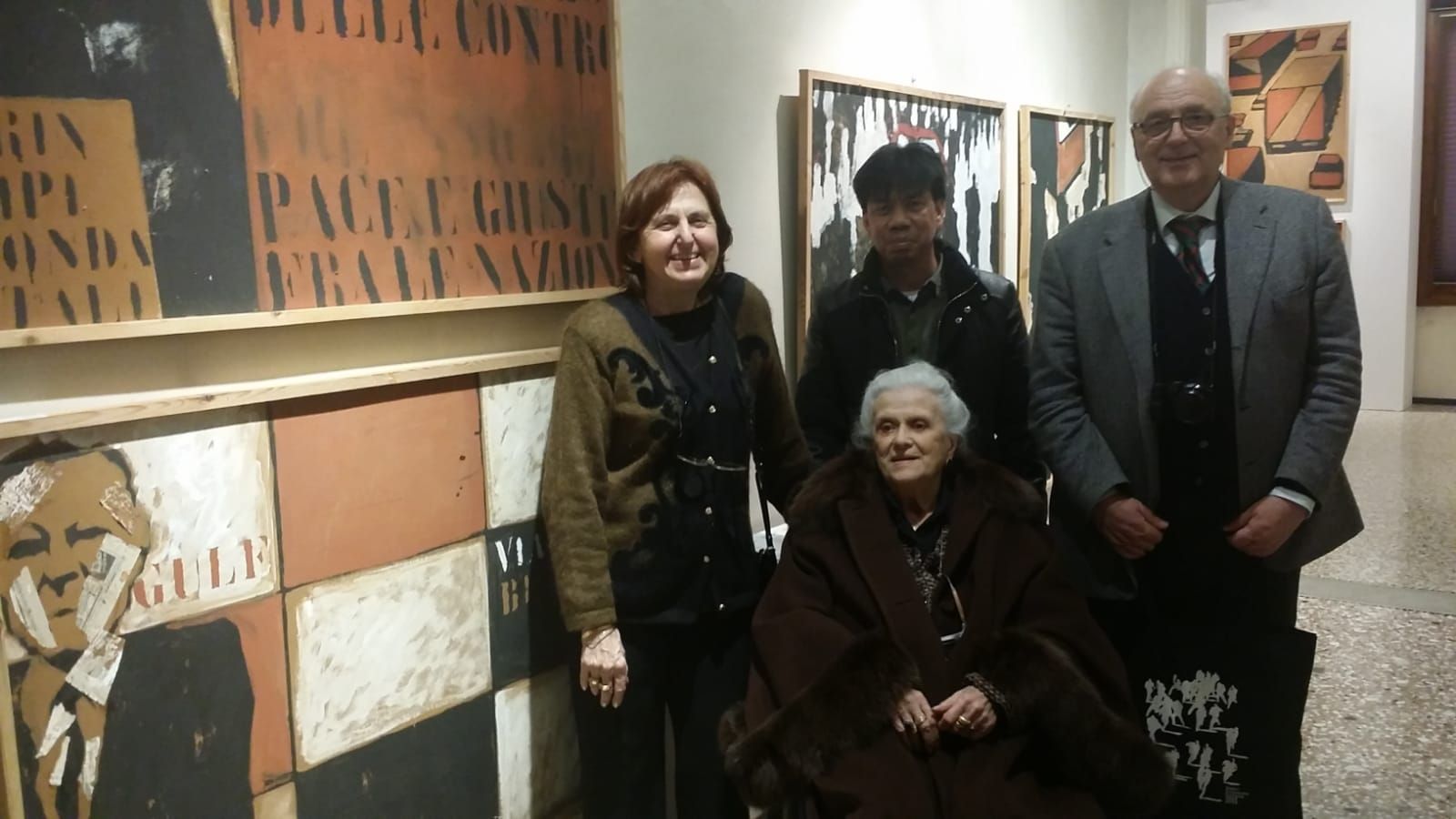
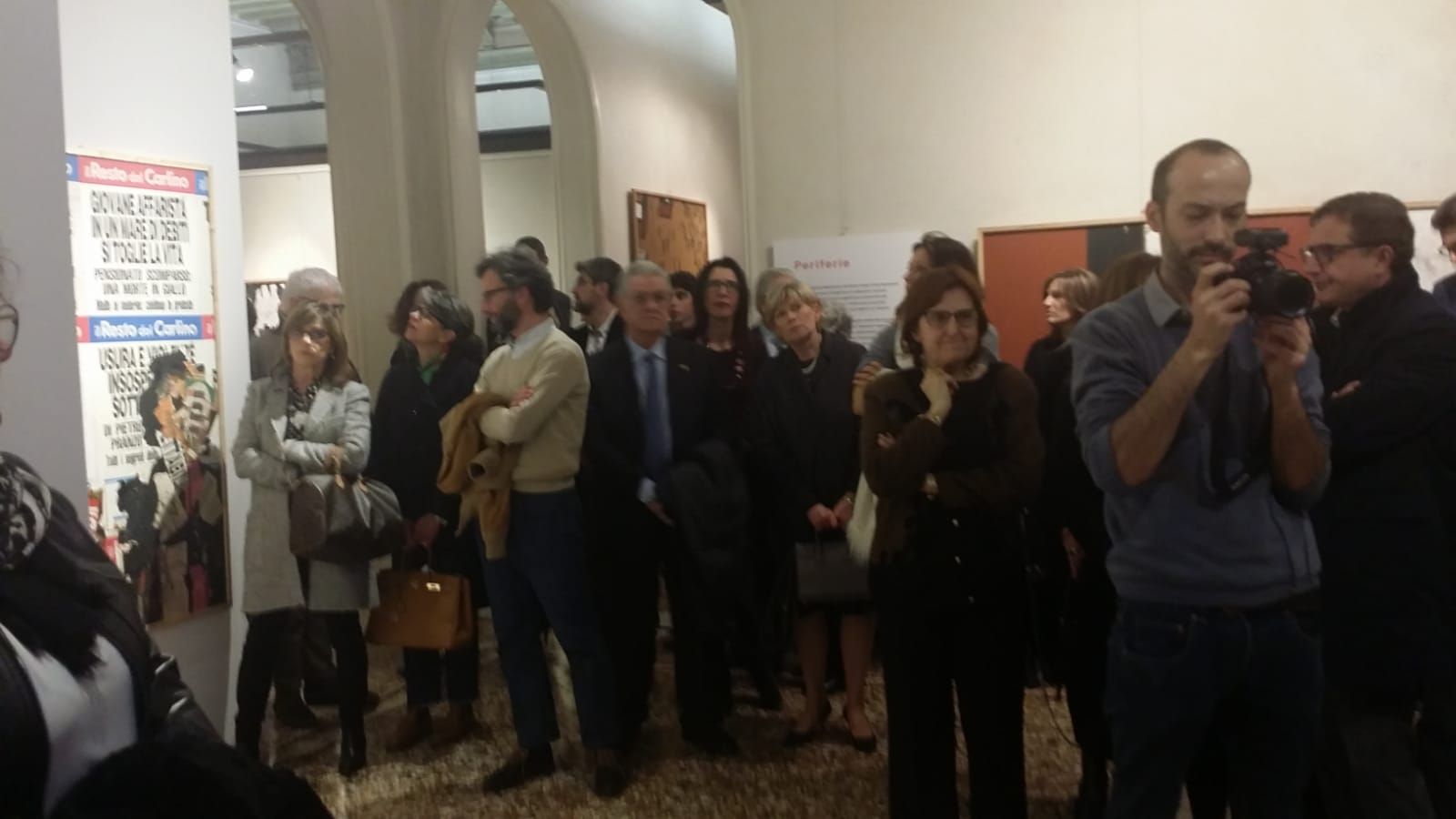
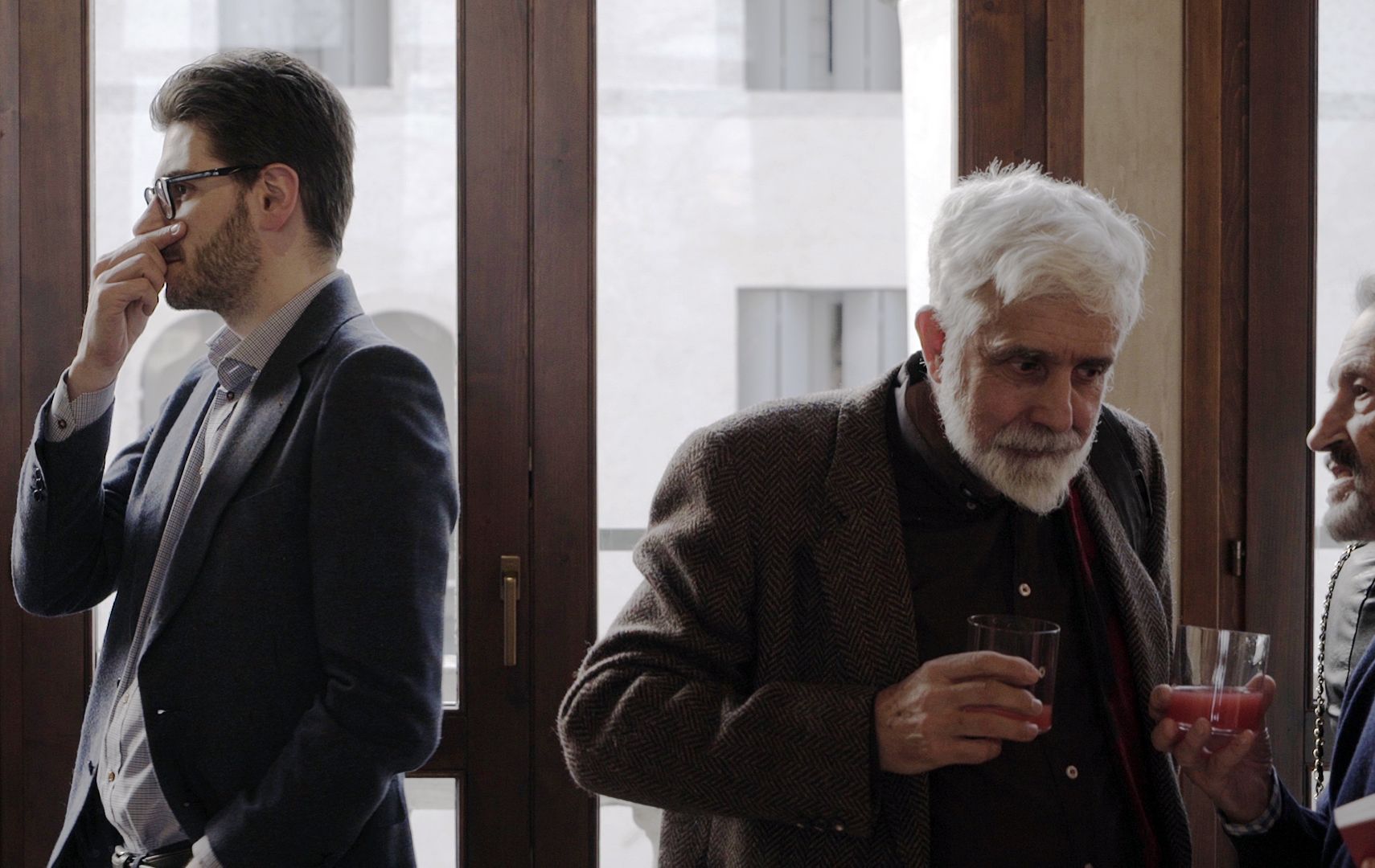
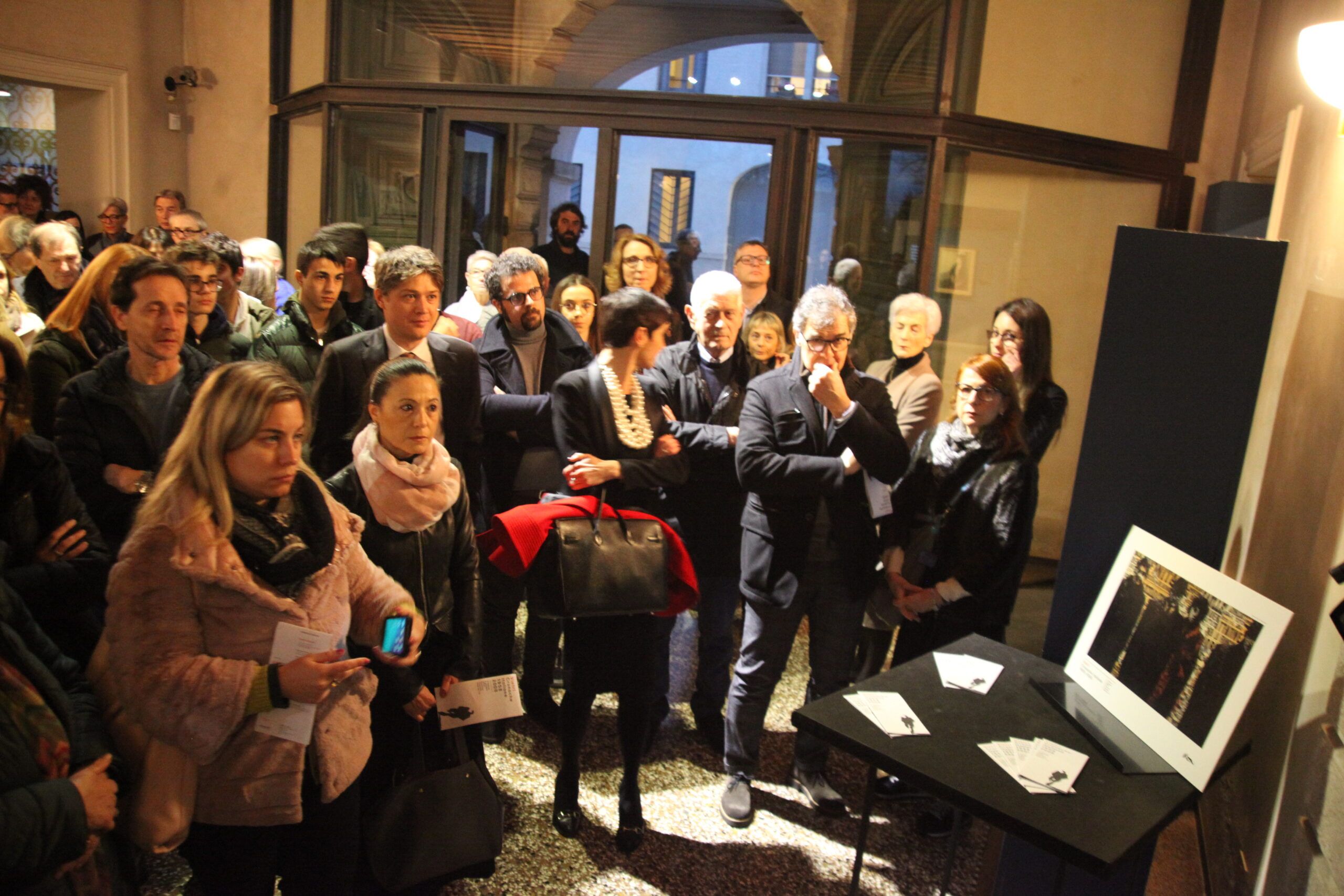
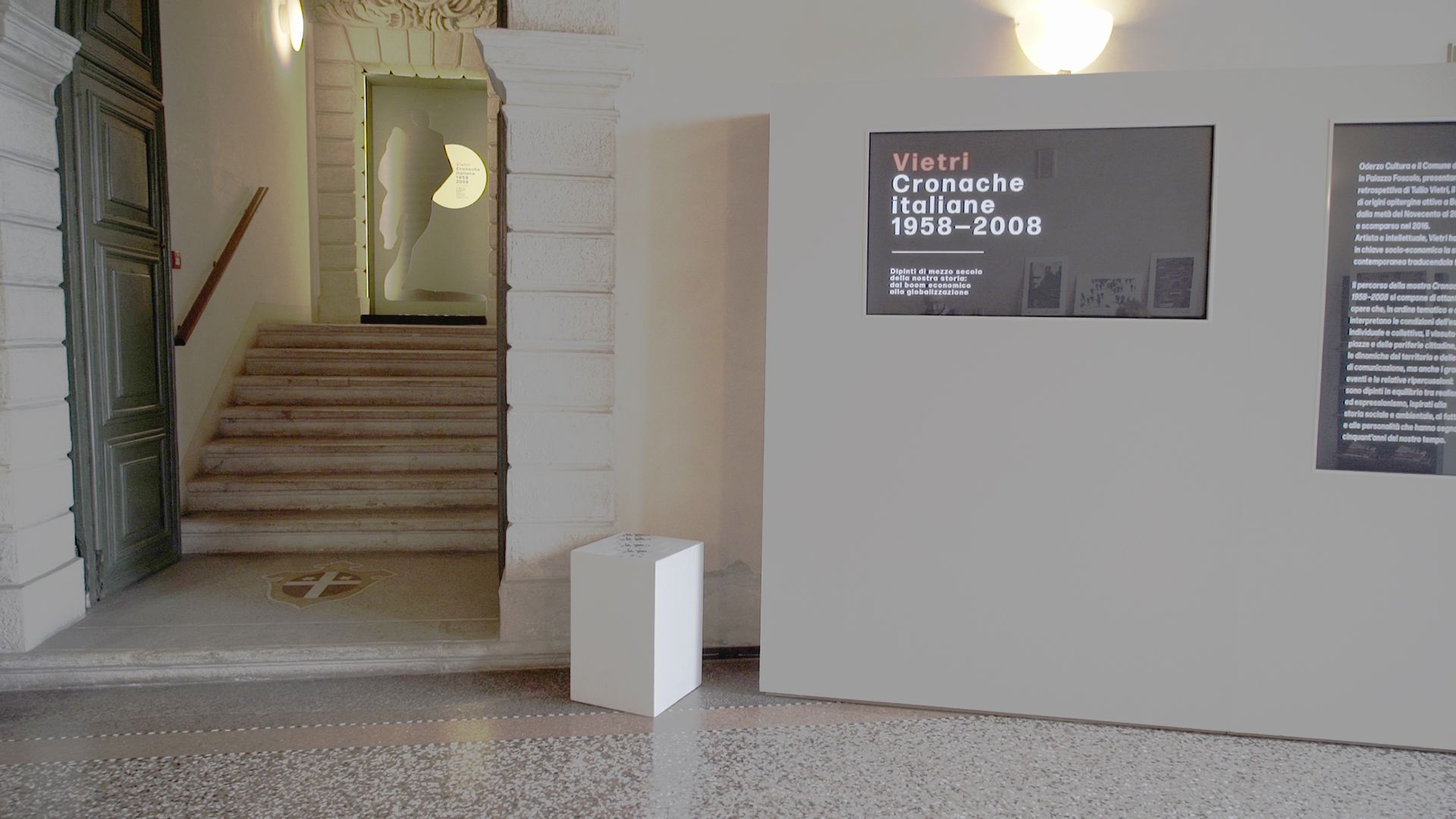
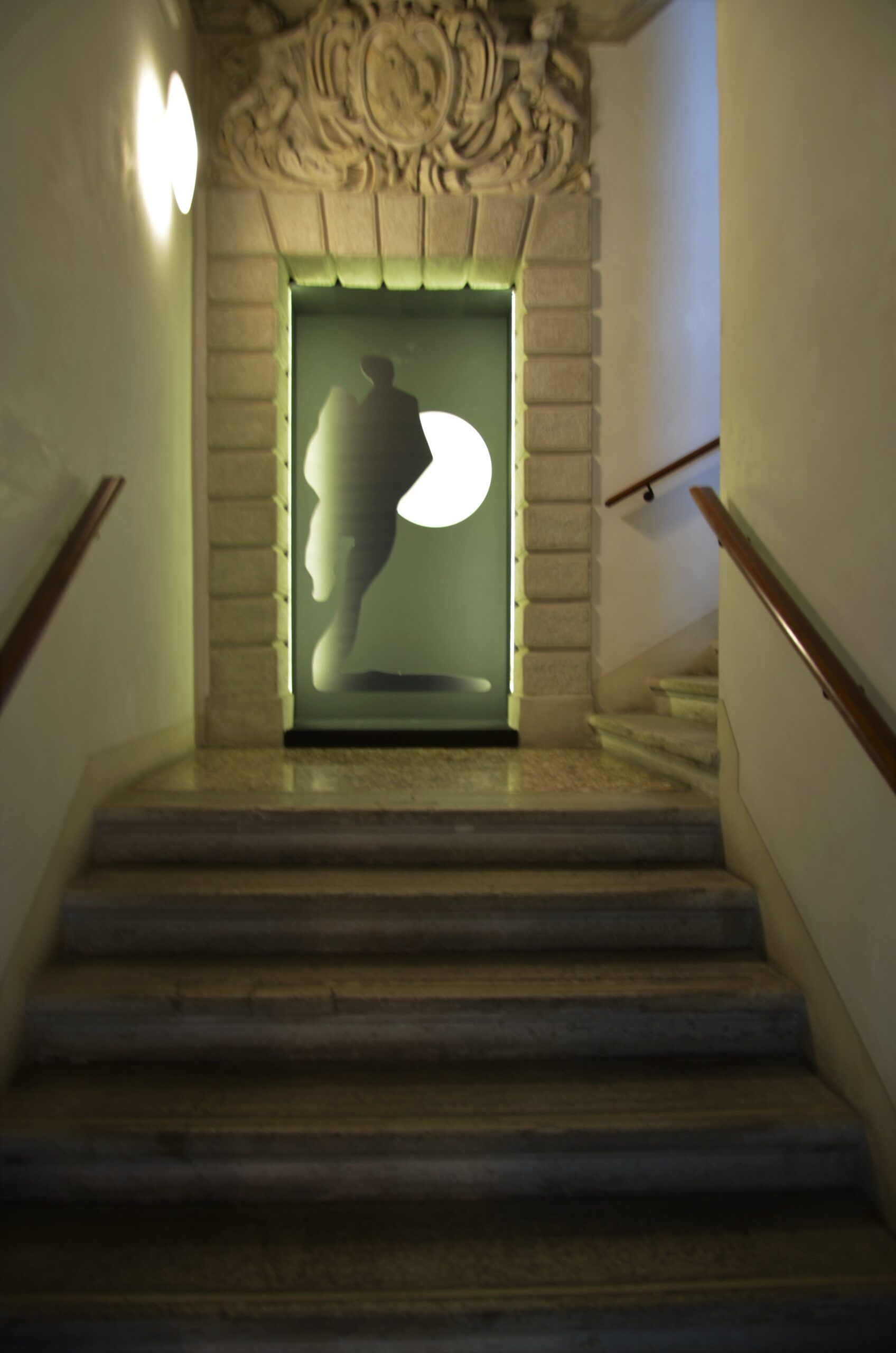
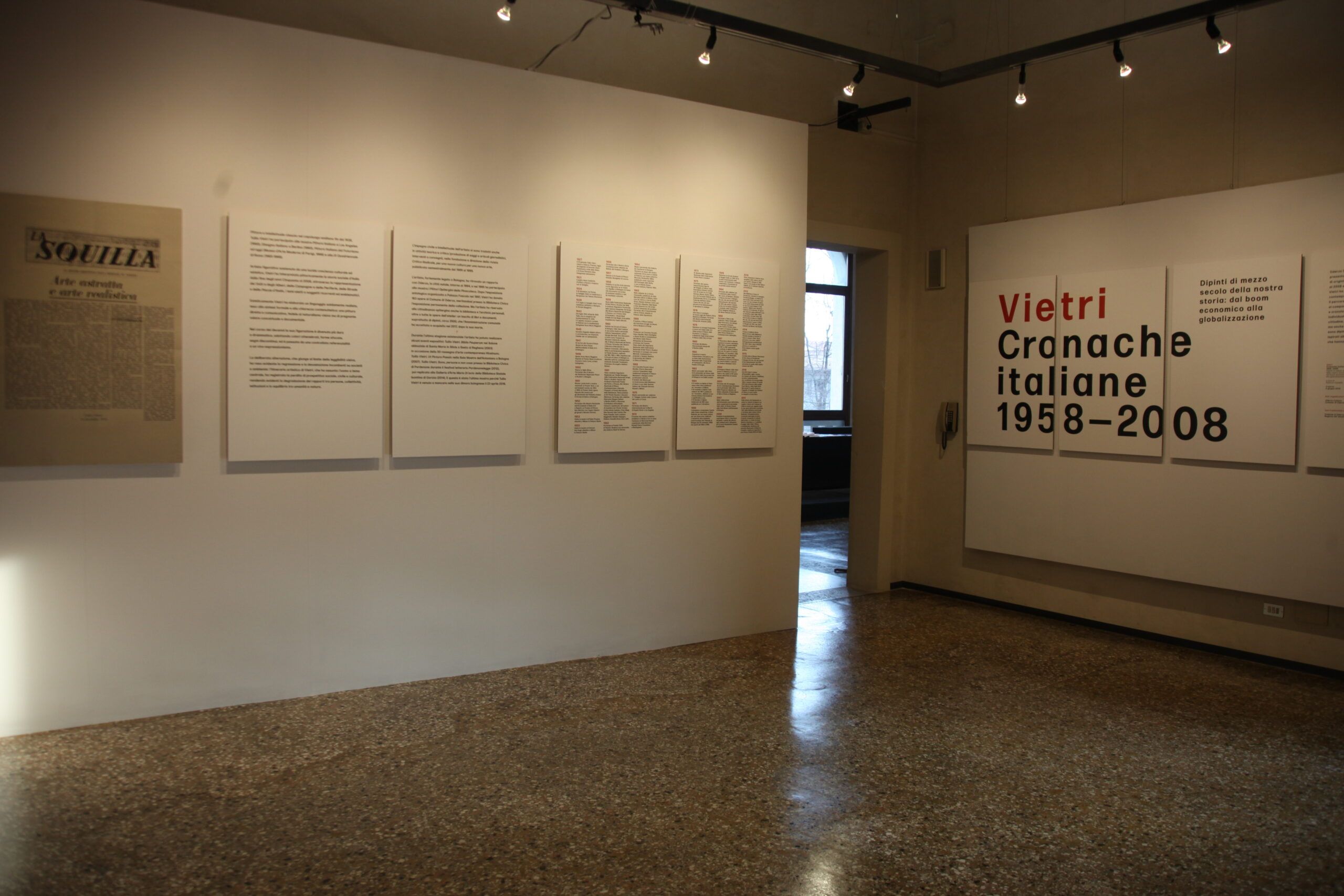
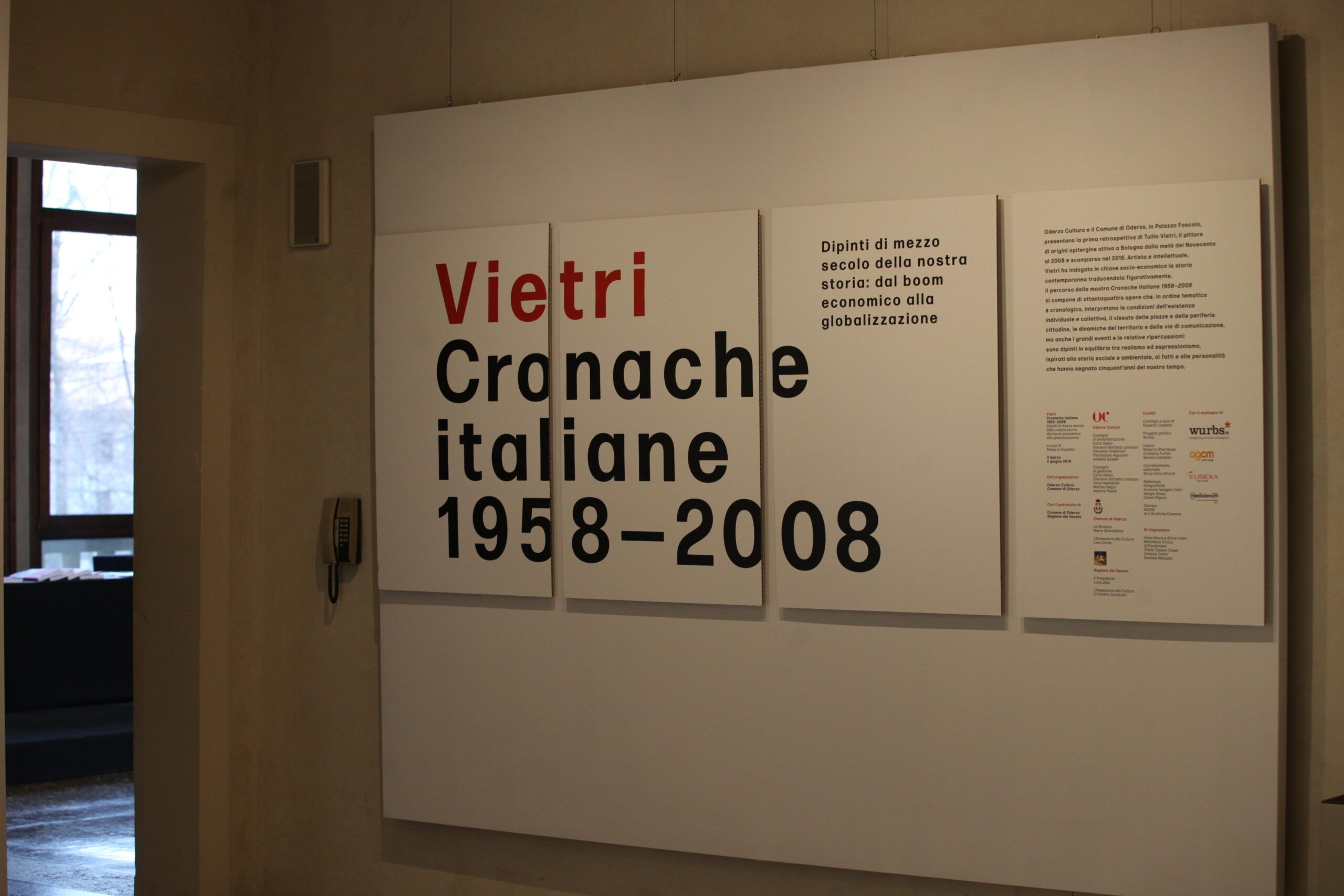
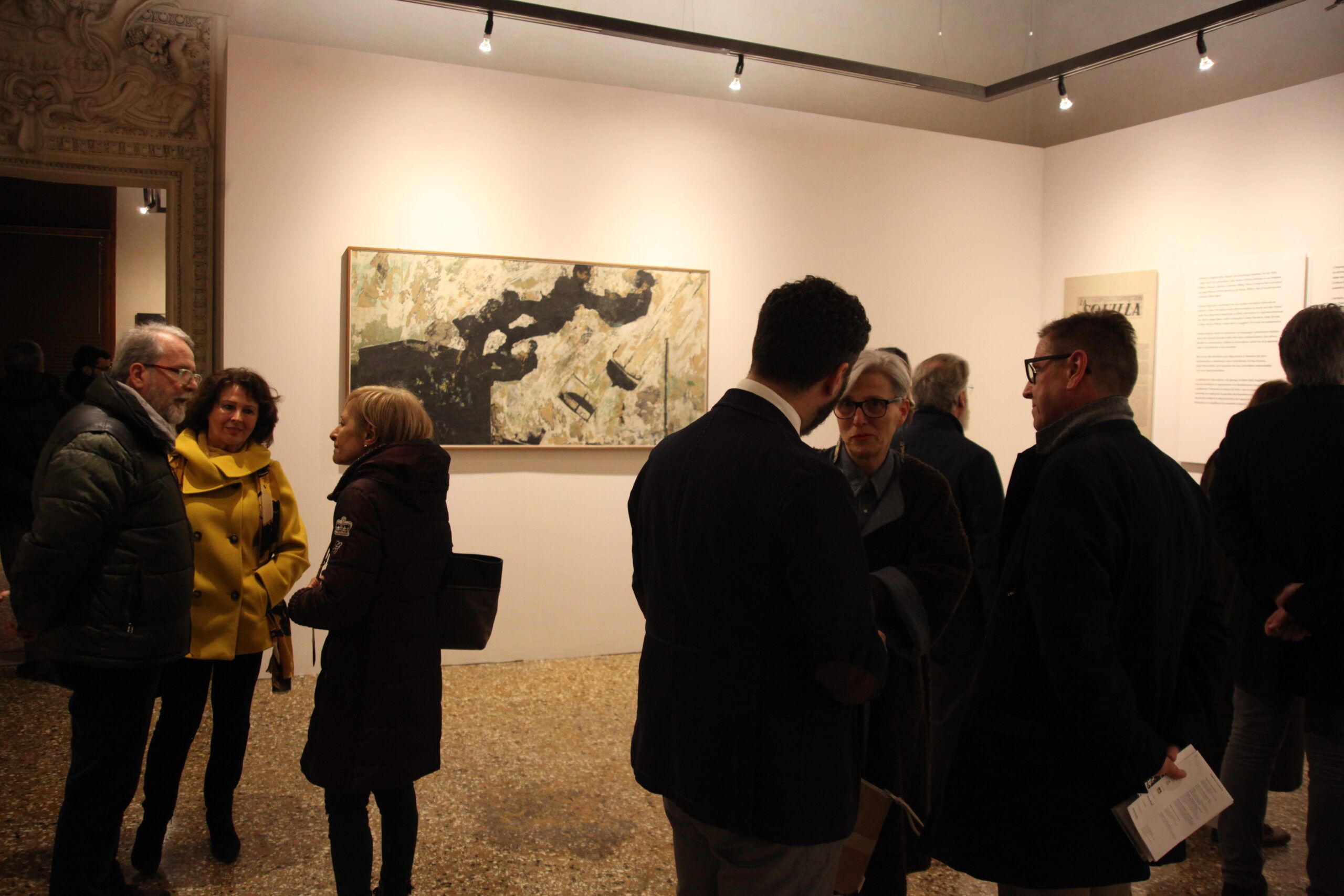
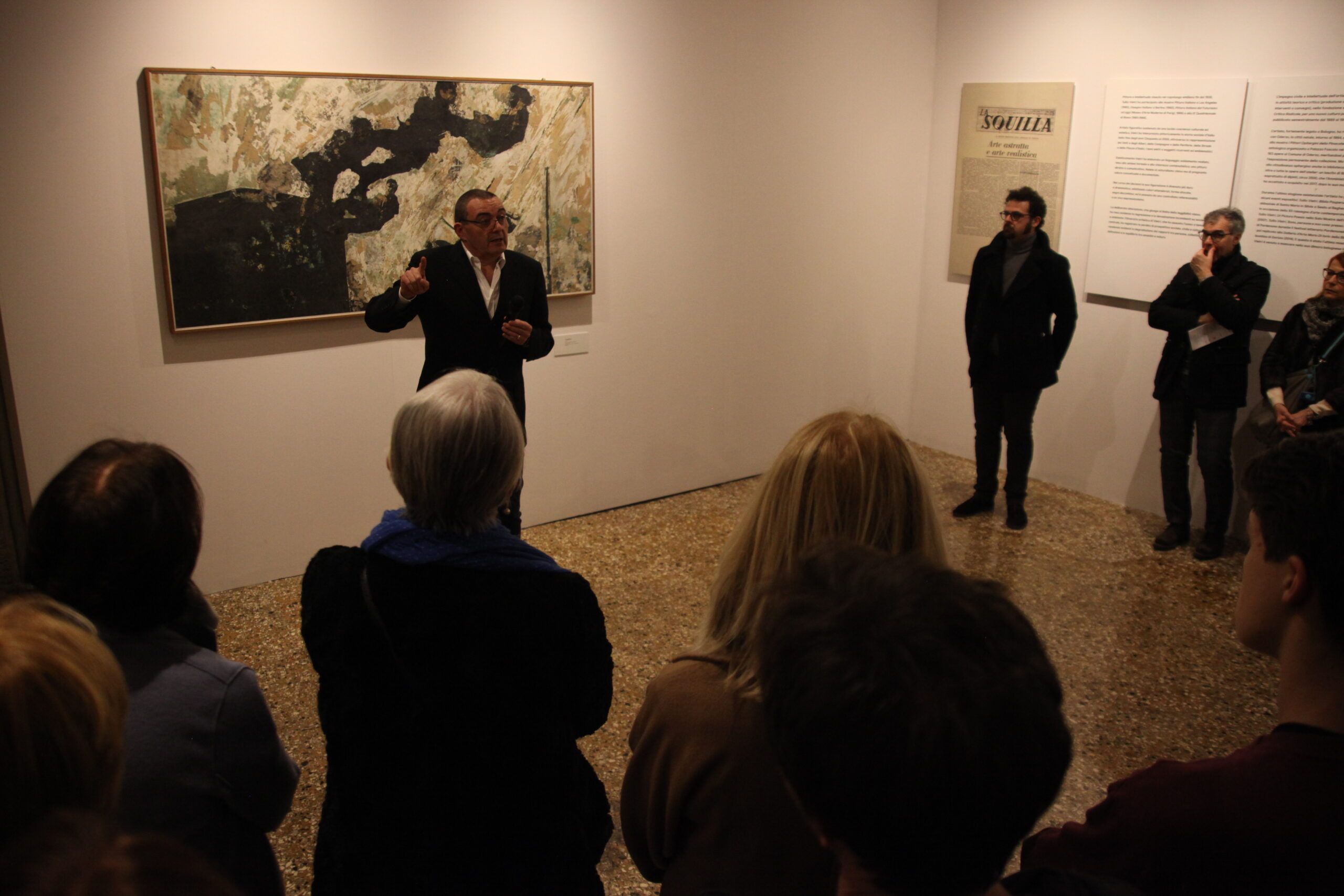
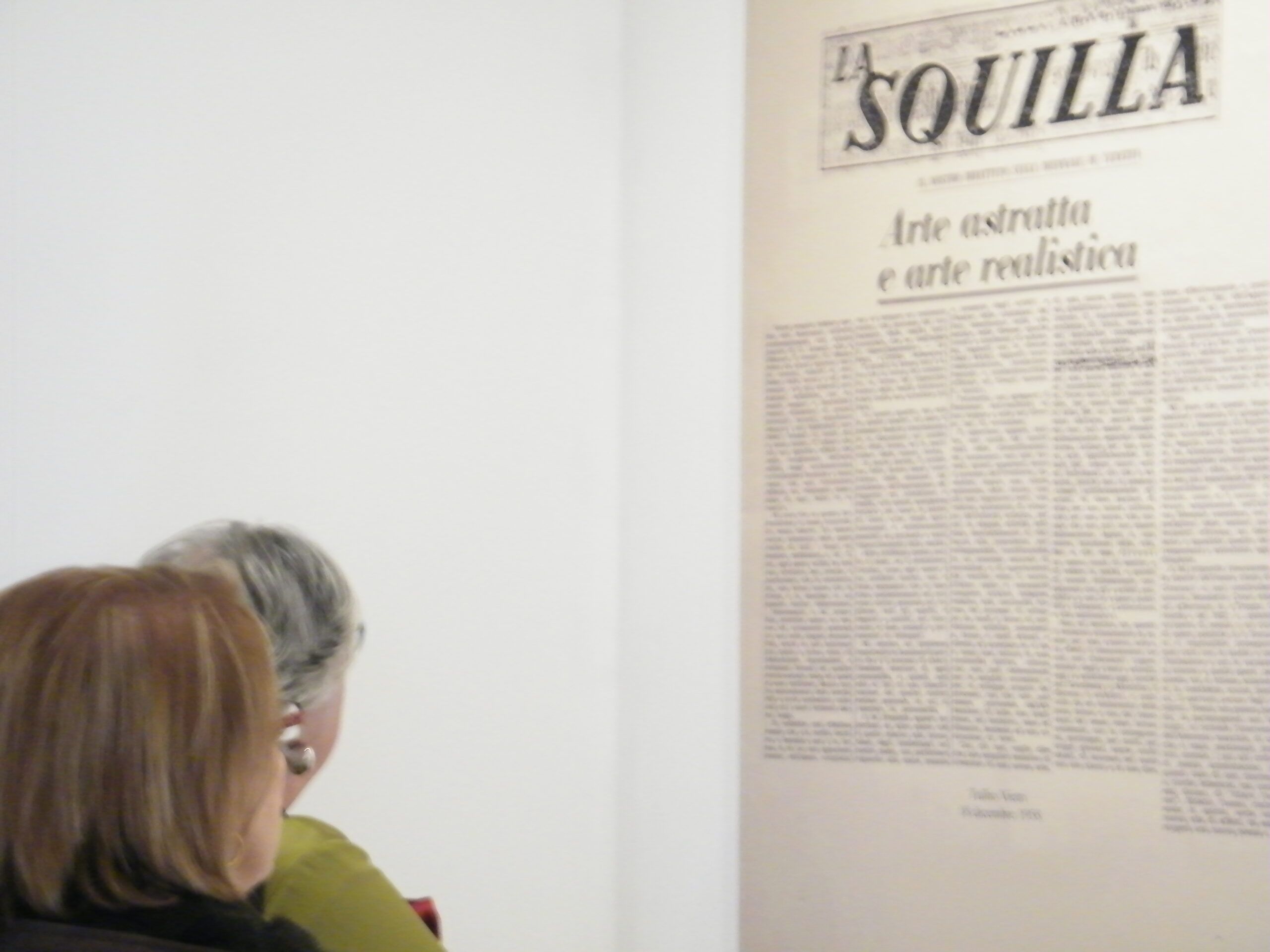
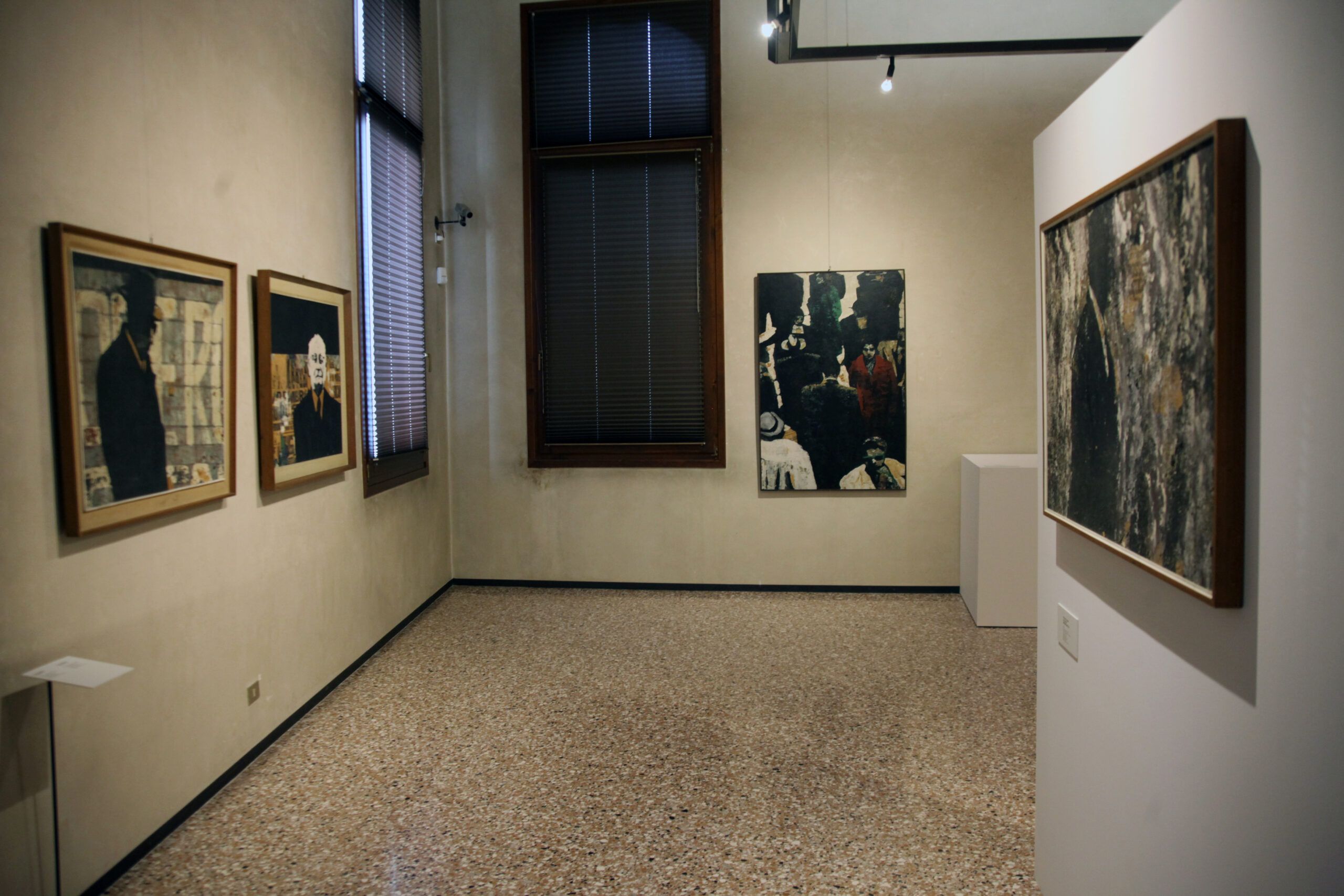
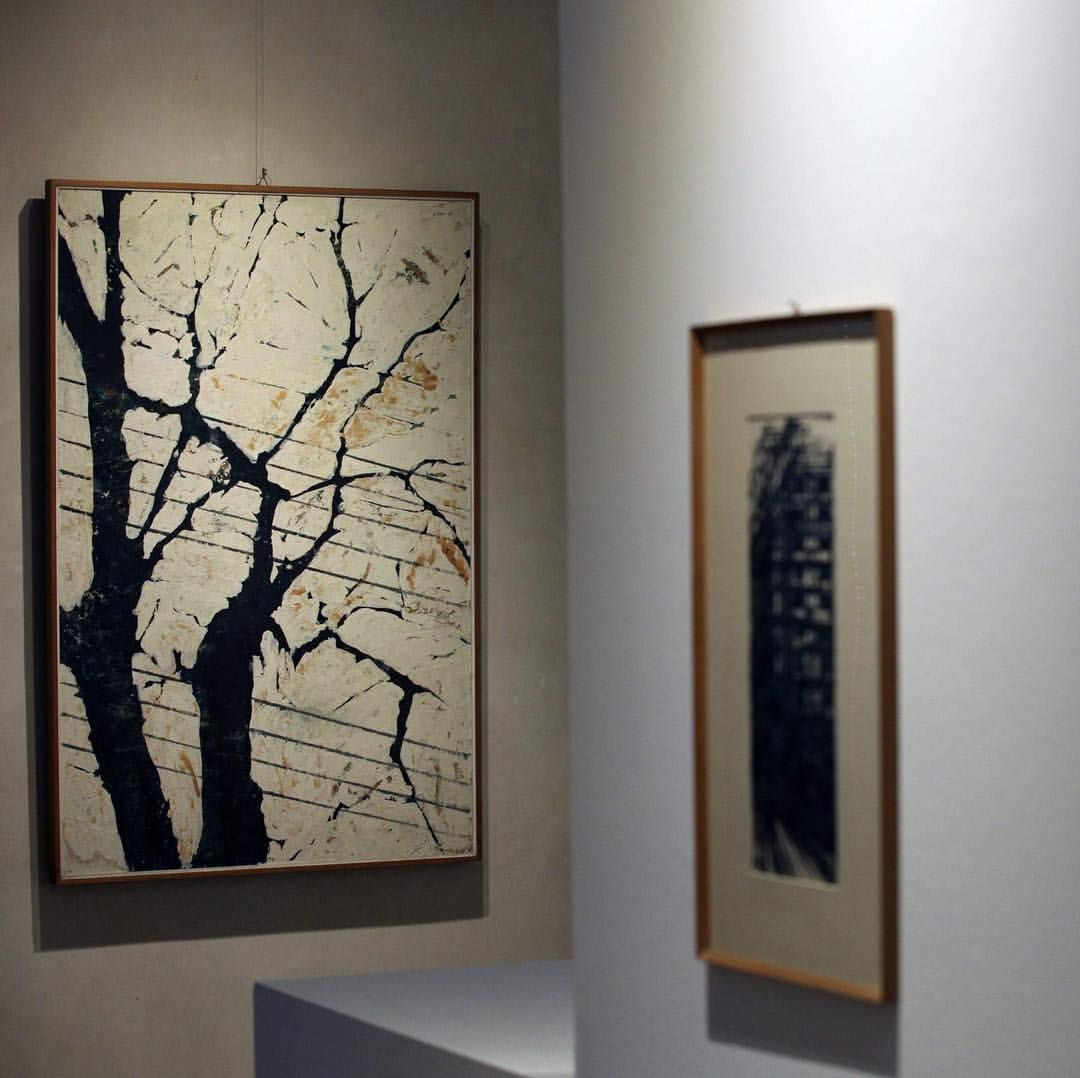
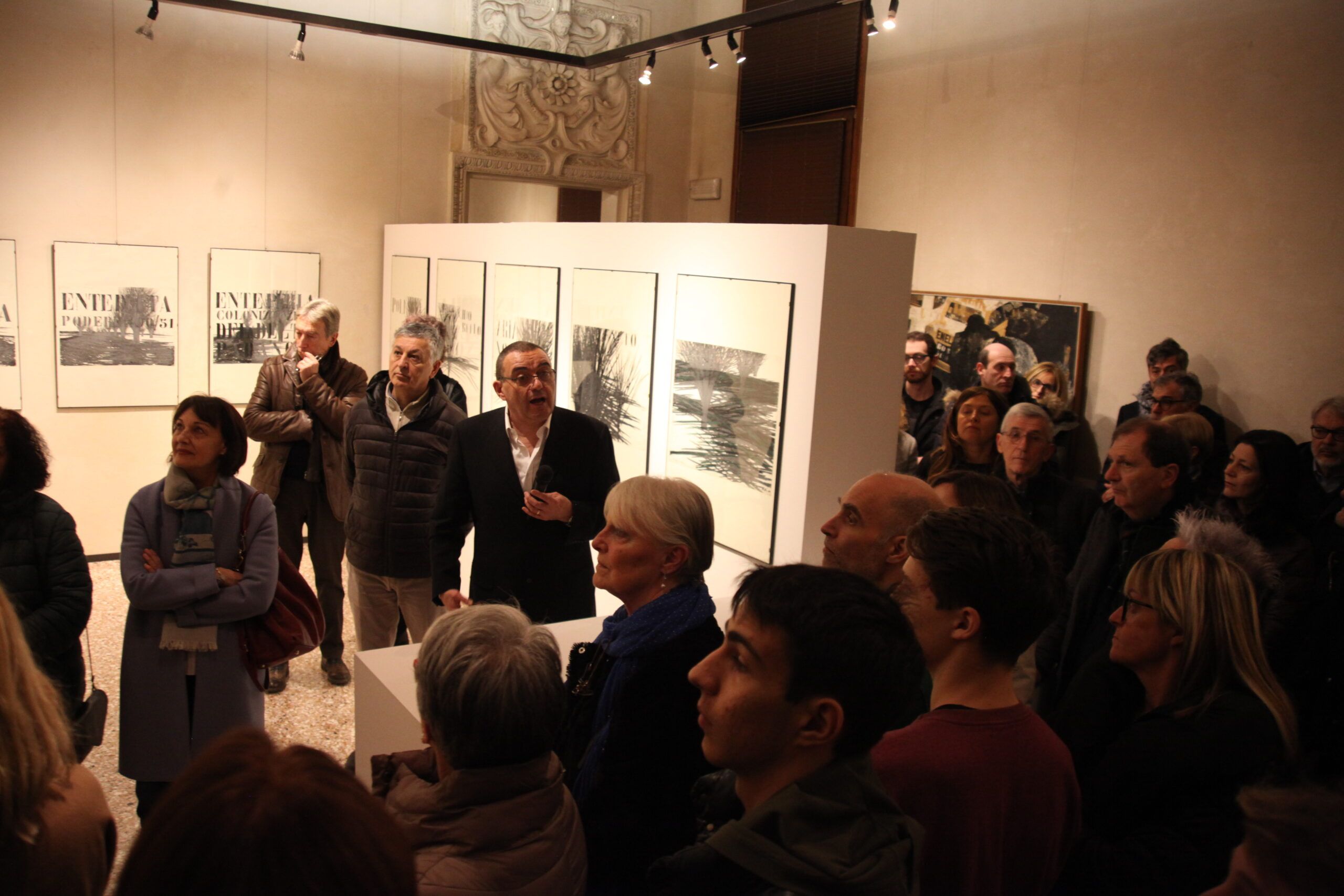
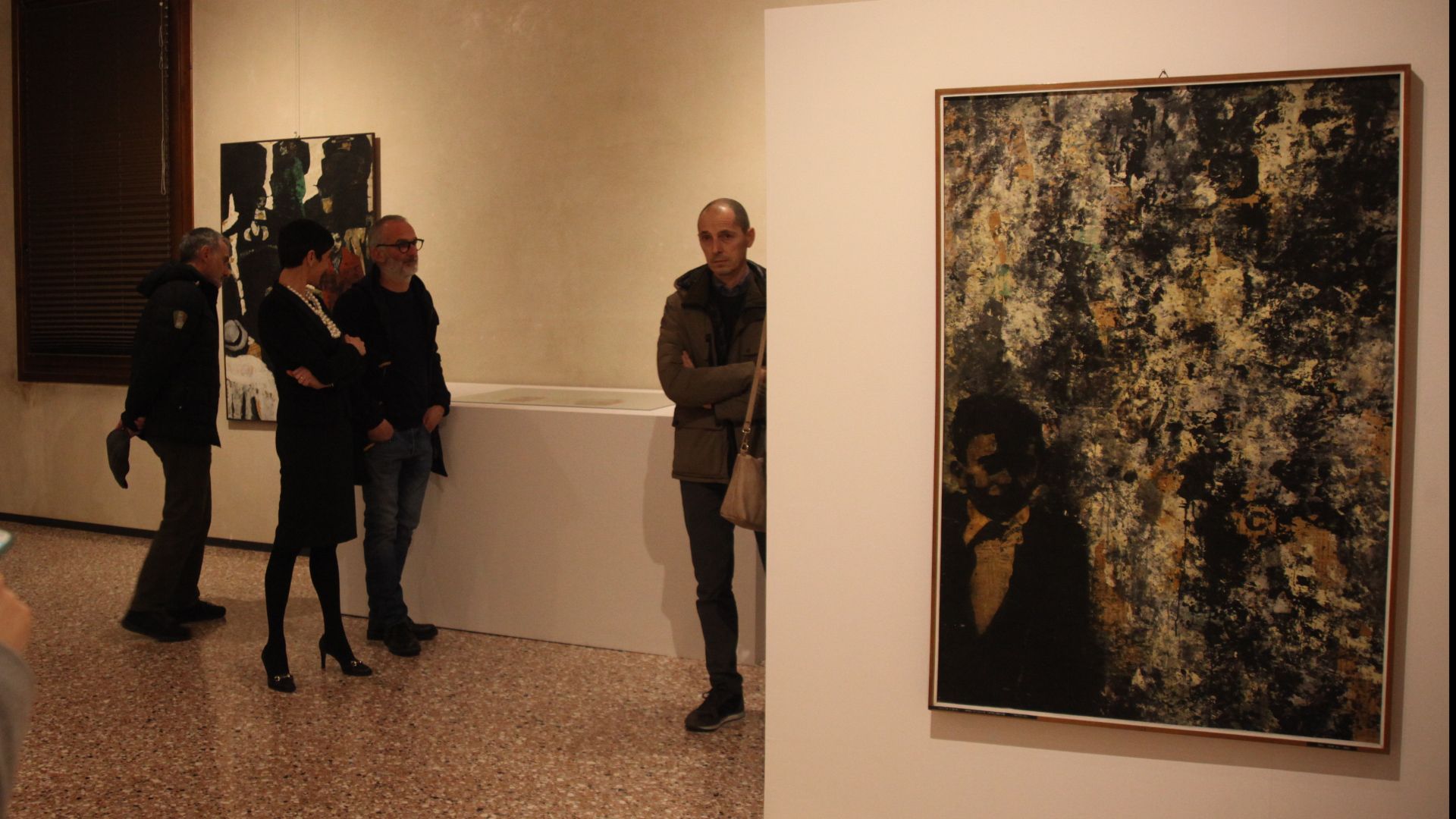
Events & News
Highlights of special moments, near and far.
The Atelier
The atelier preserves the family’s rich pictorial and graphic collection (approximately 1,500 pieces, between paintings and graphics). It periodically organizes temporary exhibitions within its spaces, in order to promote knowledge about the collection, displaying the works in rotation.
It is located in Bologna in Via Saragozza 135 under the historic portico of San Luca.
The Atelier can be visited, by appointment, from October to June. Guided tours available.
The Museum
The Biblioteca Civica, managed by the Oderzo Cultura Foundation, displays the core of the collection owned by the Municipality of Oderzo, by the artist’s behest, custodian of his artworks (about 4000 pieces including paintings and graphics).
It is located in Oderzo (TV) in Via Garibaldi 80 at the Civic Library.
It can be visited during library opening hours and by appointment.
